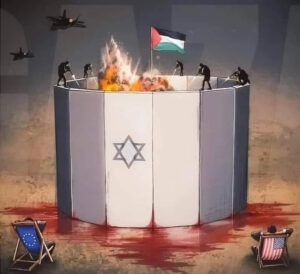The forum was held one fine, sunny day at the not for profit Peppertree Café. It was held jointly by Metro Assist [the Canterbury Bankstown Migrant Resource Centre], and the Bankstown Multicultural Youth Service. This culinary establishment was a project of the Service.
I was met by Nick, my handler from Metro Assist, who escorted me inside. The Café, at Bankstown, is designed to help disadvantaged young people get a start in their hospitality career. It gave direction to recently arrived migrants and refugees from the Middle East, Africa and Asia.
Staff had to each commit to a minimum three-month stint. The café bridged the gap between short-term work placements and full-time jobs. Before joining ‘Peppertree’, staff had to study at TAFE, the NSW vocational education and training provider.
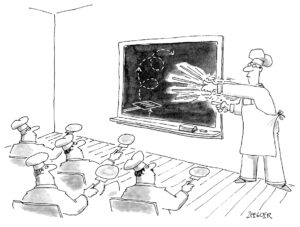
The Federal Education Minister, Jason Clare, took a close interest in this cafe with a cause. He checked out the setup on his tour of inspection.
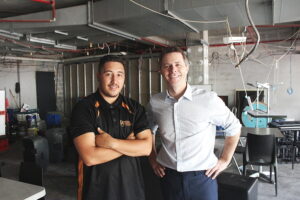
After their stint the staff had to prove themselves during work placements in commercial kitchens elsewhere.
‘What criteria do you use for choosing candidates?’ I asked the manager.
‘We don’t look for the most employable candidate or the least employable one. We try to identify who needs this experience the most, to uncover the reasons why things haven’t worked out for them so far.

At the same time we have to see a spark. There’s got to be something there, something we can bring out and work with. And we have to believe they’re ready to take this on. It requires they work their tails off. We need a core who we’re pretty sure are going to make it. We can’t take just the hard cases.

So, we walk a tightrope. They walk a tightrope, too, once the apprentices actually start in the kitchen. Work has to be fast and accurate,’ he added. ‘Chefs are short and sharp. It’s hot, stressful, tempers fray.’
‘Can you sort them out before they sign on? Is there an acid test to go by?’
‘We give them a taste test. We don’t expect them to say what they’re eating,’ he said, ‘just to describe it. Salty, bitter, sweet as well as acid. They need to be open to tasting new things.
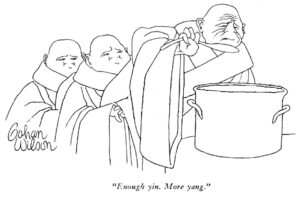
We need a sense they’re interested in food; this is a professional kitchen.’
Of course they needed to know that kitchens may not always be professionally run. There was a restaurant down by the river in Parramatta. Right by the water, it boasted the slogan ‘Everything Caught on Premises’. It turned out that this included gastroenteritis, hepatitis and food poisoning.
Young artists and musicians were able to exhibit and perform at Peppertree, whose name refers to trees that grow on a local historical property.
The café liked to be known for its do-gooder vibes and where one could simply sit back in its rustic industrial décor with sanded-back brick walls, pendant lights and raw plywood hiding a concrete ceiling. Patrons could enjoy some contemporary café fare in a chilled environment. The menu offered fresh, light fare including soups, cakes and grills as well as takeaway.
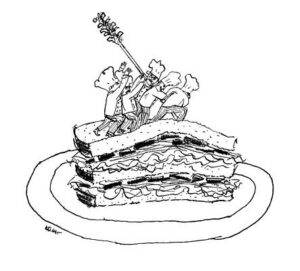
As the café was set up to provide employment readiness training this included being knowledgeable and dealing with the widest variety of clientele. This included Paul Keating, the man that revered statesman Tom Uren described as “a magnificent political animal”. The man that Minister Clare declared ‘is proof that Bankstown kids can achieve anything, a working class kid who grew up in a fibro house. A ramrod instilling strict discipline into his work like his musical muse, Placido Domingo.

The Notable Exception
While the mornings business was being sorted out, I decided to put one staff member on duty to the test while I ordered an industrial strength brunch.
Unsure how kosher certain foods were and how politics went down in this neck of the multicultural woods, looking for clues, I jotted down ‘Pork Eating’ on a serviette and asked her ‘How do you feel about serving this here?
She replied, ‘He’s welcome here at any time.’
She knew this was how some locals pronounce the name of our former Prime Minister, Paul Keating.

She knew that Bankstown was this car-nnoisseur’s old stamping ground .

She knew that he was an investor in a piggery.
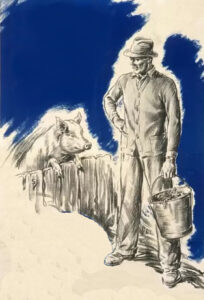
Most importantly she was able to answer without hesitation when I asked her, ‘Which exceptional notable do you think has been the strongest defender of the Middle East community?’

I asked her, ‘Does Mr. Keating come here often?’
‘Not often. When he dropped in he was attending a movie upstairs at the cinema.’
‘Can you remember the title?’
‘Howard’s End.’
What did he order?’
‘When he came’, she said, we offered him the Magical Mystery Meal.’
After he finished, he wrote on a serviette, ‘Whale oil beef hooked-it’s gammon.’
‘I said, ‘Yes, it is gammon.’
‘But we don’t use whale oil and it’s not beef that’s been hanging at the abattoir.’
‘Mr. Keating is famous for his Irish wit,’ I explained. ‘What he means is that the meal was both a surprise and a pleasure.’
‘Please, what means ‘gammon’?’
‘It has two meanings. It means ham which has been cured or smoked like bacon. Secondly this is a Victorian era English word for pretend. It is one still used by some Australian Aboriginal people to mean ‘joking’ generally. This word is now gaining usage elsewhere in Australia thanks in no small part to Mr. Keating. He sharpened his gammoning –usually pronounced Gam’in’- skills while conferring with northern tribal leaders.
‘So you’d say he has a good sense of humour.’
‘Undoubtedly. He is famous for his sharp, forthright wit and sardonic, theatrical humour. It’s mocking and stinging because it’s so accurate. He enjoys jokes that take a swipe at foolish people. He doesn’t suffer them. They get his Irish up. However he supports the underdogs and dispossessed like our indigenous people in their trying circumstances.
In his historic speech at Redfern on the impact of colonisation in Australia, he declared: ‘It might help us if we non-Aboriginal Australians imagined ourselves dispossessed of land we had lived on for fifty thousand years and then imagined ourselves told that it had never been ours.’
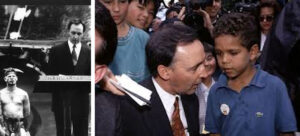
On behalf of the nation state, Paul went on to admit moral responsibility for a litany of crimes against Australia’s Indigenous people.’
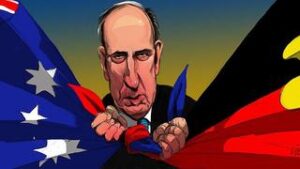
’’We have similarly dispossessed people from other parts coming in here all the time. We have refugees coming in here who fled conflict and political unrest in the Middle East. In fact we have one here sitting right next to you. Let me introduce you to Fouad one of our regular, valued patrons,’ she said, indicating the man, his hat laying on the table beside him. ‘He knows what being a refugee is all about. Fouad,’ she said looking at him, ‘this is Allan. He’s interested in how Paul Keating has extended a hand of welcome to those fleeing turmoil in the part of the world you come from.’
‘I’m pleased to meet you, Fouad. My interest in that ongoing turmoil derives from my knowledge of the history of colonialism. It derives from the way in which armies from the West have fought each other there. My interest was piqued by the commander of my university’s regimental company. Alan Treloar was a mortar commander of Australian troops assembled in Palestine in 1941, nervous and untested in warfare, about to fire their first ever shots in anger –against the French.’
‘Allan, I’m pleased to meet you too. too. I look forward to finding out more about that. Of course others-no guesses who- came increasingly from abroad after that war to assemble in our country and fight against us, the local people. Interestingly you share the same Christian name as the esteemed actor, Mr. Rickman. He was targeted by the IDF propaganda machine because of his sympathy for Rachel Corrie.’

‘Who could forget that tragedy? A young woman crushed when she put herself between an Israeli army bulldozer and a Palestinian home it was about to demolish in Rafah.’
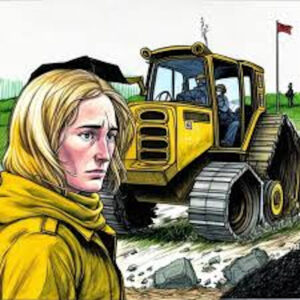
She is now an official daughter of the Palestinian people, a venerated martyr of our struggle.
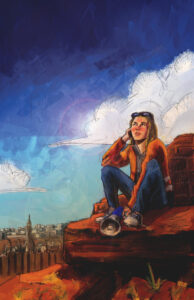 ’
’
‘You are fortunate to have escaped that sorry scenario.’
‘My compatriots from Palestine and I have those like Paul Keating to thank for for offering us shelter so far from our beloved homeland.
‘Fouad’, said the staff worker, before I leave you to talk with Allan, let me know if you’ll have your usual.’
Yes, please. That will be my special brunch. My salad with lettuce, carrot, cucumber, tomatoes, avocado, walnuts, sesame seeds, eggs and lemon juice dressing. And a black tea without sugar. That’s all.’
‘That sounds very healthy, Fouad,’ I commented. ‘No grains, nothing processed. And nothing sugary. By the way what do you call the Palestinian who quietly turned down his fiancée’s offer of a plate of baklavas?
‘Please inform me.’
‘Asif.’
‘He obviously whispered sweet nothings in the her ear.’
‘Who put you on to a diet like that? Your doctor?’
‘It was the Israeli military. When they bombed my neighbourhood they destroyed the bakery, the grocery store and killed most of our cattle. I put it to Australians who’ve never experienced anything like that, ‘How would you like to find yourself one moment peacefully with your family and the next you’re all part of a stampede fleeing through gutted, smoking streets alongside livestock?’
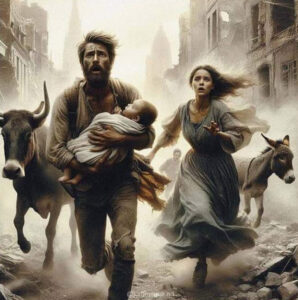
‘How did you get by after that?’
‘We had to rely on whatever we had put aside, on what we could forage for and on the chooks who survived. Ever since they bombed my suburb back into the Stone Age, I’ve stuck by this diet since.’
‘So you’re not some trendy food faddist.’
‘Hardly. What I am is a Paleostinian.’
‘What did you do back in your homeland?’
‘I had a business selling watermelons- until my overheads became too heavy.’

‘The watermelon is an important symbol for the Palestinian people, I believe.’
‘It’s a symbol of public expression in protests and artworks representing our struggle. Because our flag is coloured in the pan-Arab colours of red, green, white and black, it has been banned at times by Isrule. So the similarly coloured watermelons we grow have served as an alternative. Just as our people themselves sacrifice their lives in this struggle, so do we offer to the deities a sacrifice of this precious nutritious and refreshing fruit.’
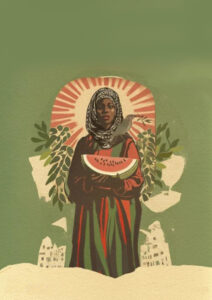
‘Fouad, what do you say about Israel’s boast that it carries out its military operations with surgical precision?’
‘I’d say that as with any butcher posing as a surgeon, they should be struck off the listing of Fellows of Surgeons. We have a joke about this which goes as follows: One IDF technician asks another, ‘What’s the difference between a Hamas command centre and a Palestinian hospital?’
‘I don’t know,’ came the reply, ‘I just follow orders and pilot the drone.’
This raises the question,’ I said. ‘ Are IDF personnel , including the best trained marksmen in the world, experts at ever so high levels of accuracy in killing civilians—-’
‘And hence war criminals.’
‘—or do they include clusters of trigger happy klutzes when it comes to killing.’
‘I’d say a mixture of both. The IDF claims they’re boosting their targeting through applying artificial intelligence but I have my doubts. Artificial intelligence is no match for natural stupidity. One thing can’t be denied. They’re all experts at killing anyone who gets in their way.’
‘Fouad, I imagine you have to find humour in such situations or you’d go crazy. The jews developed it as a coping mechanism, poking fun at absurdly dark situations with a sort of macabre humor. There is even a phrase for this in Yiddish: ‘bitterer gelekhter’’ or ‘laughing through the tears’. Now, on a lighter note, tell me about your fascinating hat. It’s black and white chequered pattern and your matching tie brings to my mind your homeland. Yet that fishnet pattern is usually part of a headdress fashioned from a scarf.’
‘That is true, Allan. The thing is I had this hat specially made to remind me of who I am. When I left Gaza I left the keffiyeh behind me. When I arrived in Australia from Gaza, this hat and a small suitcase were all I possessed.
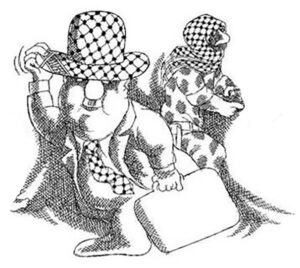
Wearing the traditional keffiyeh outside their homeland has led some wearers to being misunderstood. Some see it as a chic fashion statement.

However others associate it with extremism. So my hat is for me a symbol of my homeland yet one that attracts no concern.’
‘Unfortunately the ruinous conflict that forced out your countrymen without a country shows no sign of letting up. The military incursions, the bloodletting and the bulldozing carry on as ever.’
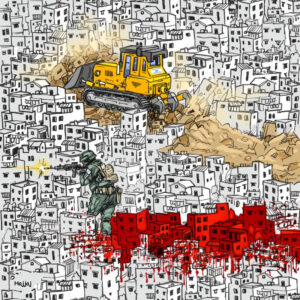
‘Yes, the latest round of violence in today’s headlines is not an isolated incident. On the contrary, today’s fighting is yet another page in a years-long, bitter conflict. The creation of Isrule or should I say Misrule- in 1948 sparked one of history’s largest refugee crisis, wars, terror attacks and a harsh military occupation.’
The Promise
‘I saw recently a brilliant TV series dealing with this creation. ‘The Promise’ offers a great insight into the ensuing conflict. It distills enormous difficulties to a deeply personal level. It tells the story of British soldiers stationed in Palestine during the final years of the Mandate period 1945–1948.

It gives one an idea about how temporary their claims to the world’s real estate was. Like the deployment of British troops in Northern Ireland in the 70s, their mission was one of pacifying two warring communities. They were ‘the meat in the sandwich’. The series shows the impact of events in Palestine back then on the current situation in Israel and the Palestinian enclaves.

It reveals this in a second story through the eyes of a young woman, Erin, who, when accompanying her friend from London to present-day Israel and Palestine, is determined to find out about her soldier grandfather, Len’s involvement in those post-war years. In her quest, acting as our guide, she learns some harsh truths.

The connection and parallels between the two characters, transported through time, are at the heart of The Promise.’
‘ I’ve seen it too on YouTube. I’m a keen student of film and hope to make my own one day. The absorbing series flicks back and forwards effortlessly between the two periods. It kept me in an attention headlock that seldom relaxed its grip. I find this extraordinary epic is beautifully shot, extremely well written, textured and extremely balanced. The director has obviously worked closely with his actors.
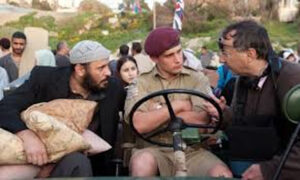
His production is full of exquisite performances and reminds us all of what happened in history. I was particularly struck by the house demolitions carried out by the British against the British trained Zionist militias looking to rid the land both of its current residents and their former backers. Likewise the destruction of a family home in contemporary Gaza. I was interested in what other parallels might exist with the present. For example the network of tunnels built by the Zionist fighters resisting the British reminds us of those built by the Palestinian resistance to today’s Zionists.
Then there was the activity of the Irgun, as ruthless as any 21st-century terrorist organisation. When they bombed the King David Hotel in Jerusalem, in July 1946, 91 people died, many of them civilians.’

‘That’s the hotel which served as the British Mandatory authorities’ headquarters.’
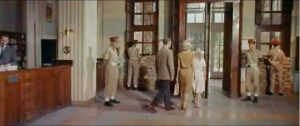
‘It’s where documents incriminating the Jewish resistance in attacks against the British were stored. Len also witnessed the massacre of over 100 Palestinians by that same militia at Deir Yassin.’
‘The filmmaker, Peter Kosminsky, certainly did extensive research. The ambitious series was led by what had come out of gripping and moving interviews with the British veterans, what the soldiers had said and felt, and what they had actually experienced. Overwhelmingly, the veterans told the filmmakers a similar story: thrown into the dark heart of the conflict for the territory, they had started out “incredibly pro-Jewish”. When Jewish refugees arrived in Palestine off the boats, the British troops lined up along the beach to receive them.
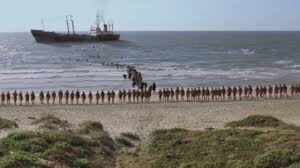
Racing along the beach to guide them on to land, they were tasked with maintaining the immigration cap that the British had set.
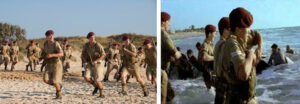
The new arrivals were promptly herded into enclosures not much different from the camps they’d come from and some beaten by British forces. The British placed strict limitations on Jewish immigration to Palestine- many soldiers didn’t like it all.
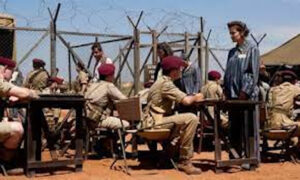
Some had witnessed first hand the grotesque horror of Bergen-Belsen. Others had seen the newsreel footage. They knew what these people had been through.
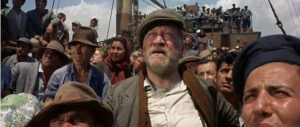
However they had shifted their allegiance and by the end of their assignment were feeling a great deal of sympathy for the Arabs.
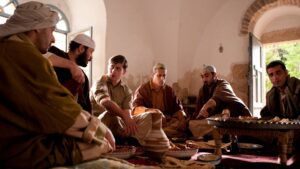
They were being attacked on a daily basis by the Jewish resistance.
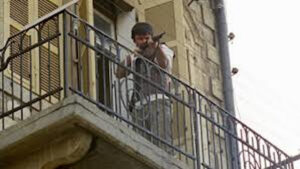
They were under constant threat of kidnap and mistreatment.
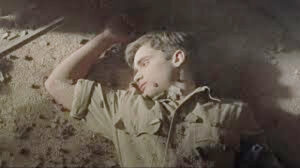
Confined to barracks behind a lot of razor wire, their feelings were bound to change.”
“A big change came in the final months of their being garrisoned there. They saw what would happen to the Palestinians.

The Arabs would resist the jewish onslaught.
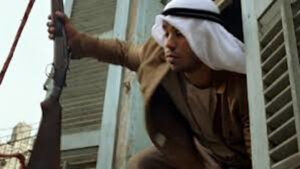
The British were left with no choice but to fight a rearguard action alongside them.

In their withdrawal they realised both opposing sides were to be abandoned to a war. As in so many other examples of its retreat from Empire, like those from Suez and from India , pulling out of Palestine was a terrible humiliation for Britain, a total defeat.’
‘Yes, this brave production shows how the past can have consequences for the present, and that having left “chaos, political confusion, bloodshed and war”, Britain has a responsibility for what happens today.
‘What struck me most is a question: “How did we get from there to here?” In 1945 the Jewish plight had the sympathy of most of the world, but “just 70 years later, Israel is isolated, loathed and feared in equal measure by its neighbours, finding little sympathy outside America for its uncompromising view of how to defend its borders and secure its future. How did Israel squander the compassion of the world within a lifetime?” This is what The Promise explores.
How could a people who had been subject to some of the most horrendous persecution in history then become persecutors. How to understand this is a motivation that calls to mind the famous line: “You cannot continue to victimise someone else just because you yourself were a victim once – there has to be a limit.”
‘In coming up with an answer it does not help anyone by claiming that good and justice are on one side only. If it were that simple, we would have already found a solution. There are rights and truths on each side, that compete with each other. You can not have everything on one side or the other, everything is meshed together. There are no good guys and bad guys in this sad situation. The filmmakers tried very hard to show pluses and minuses on both sides.’
‘The series led to kneejerk howls of discontent from the Israel lobby. Kvetching and shpritzing -complaining and spraying scorn, they claim such things as that it is a biased, one-sided rant that selects historical facts. Novelist Howard Jacobson said that just about every Palestinian was sympathetic to look at.
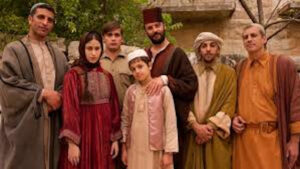
Just about every Jew was not.’
‘The jews hassling Palestinians that Erin stroppily berated were said to have been made to look vicious. She saw jewish children throwing stones at Palestinian children, Jewish settlers taunting the people whose homes they had stolen, and Palestinians being held and humiliated. The soldiers protecting the jews were said to have been depicted as bloodthirsty.
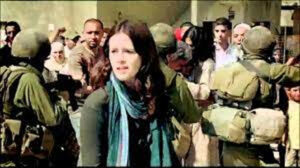
‘That’s not how I saw these characters. The soldiers were shown just as guys in uniform carrying out orders – like their British counterparts had done two generations before- under impossible circumstances. In another scene, set in Gaza, an Israeli army unit uses Erin and a young Palestinian girl as human shields, enabling them to go in and clear the family home of a recent suicide bomber before it is destroyed.
The Palestinian suicide bombers depicted were shown as looking rather sinister.

The jewish refugees washing up on the shores of Palestine after the Holocaust made us, as as well as Len, commiserate with them. Paul, Eliza’s peace activist brother, has our complete sympathy as he recovers from the suicide bombing.’
‘While most Palestinians might fairly be depicted as living in poor circumstances, Mr. Jacobson says most Israeli Jews might not be fairly depicted as living in great wealth. the family with whom Erin stays live in a dream home backing onto the Mediterranean with swimming pool, servants and all the trappings of a highly successful western lifestyle.’
‘And they aren’t all shown like that. The houses of jews into which Erin enters, are not all sumptuous like those of her host family.
‘ Mr. Jacobson says that while he finds the Palestinians to be people of immense charm, he has to laugh in derision at The Promise every time another shot of soft-eyed Palestinians followed another shot of hard-faced Jews.’
‘Perhaps Mr. Jacobson could have another look at the jewish refugees Len and comrades befriended and fell in love with.’

‘Journalist Jonathan Freedland also fired a broadside at the series. He said the filmmaker, misrepresented Israel and Zionism as being a consequence of the Holocaust.’
‘I would say that the director and writer represents those entities as being accelerated by the Holocaust rather than as a consequence.’
‘Mr. Freeland accused the filmmaker of abusing imagery of the Holocaust. At the beginning there appears upsetting footage of the British liberation of the concentration camps –soldiers found 60,000 mortally ill prisoners and thousands of unburied corpses strewn across the ground.’
’Of course it is upsetting, but necessary for putting into perspective everything that follows. How can any jewish person object to that?
So the series really divides the audience, doesn’t it. Many only have superlatives to describe it. While none go as far as issuing death threats against Peter Kosminsky as was done in Paris, critics are scathing in their condemnation. The litany of complaints from the Israel lobby in Australia includes criticisms that it unrelentingly portrays the entire Jewish presence throughout the country, including modern-day Israel, as an act of usurpation by Jews. These are without exception demonised as aliens, predators and thieves who enforce their illegal takeover by brutal, racist policies akin to those inflicted by the Nazis upon the Jewish people. It compares the production to the infamous Nazi film Jud Süss and as akin to Nazi propaganda.’
‘They would say that, wouldn’t they. You can never please such critics. They dredged up their usual charge of anti-semitism which is ludicrous. The increasingly cavalier use of the term anti-Semitism increasingly focused on criticism of the Israeli government cheapens that term. Turns it into a censorious device. Turns it into the very suppression of dissent, which in any democratic society is most often the mother of future assent.
The fact it was made by a proud jewish filmmaker doesn’t make any difference to them. Mr. Jacobson says it matters not a jot to him that Peter Kosminsky is a Jew. He says that Jews succumbing to the age-old view of them and reviling what’s Jewish in themselves has a long history.’
‘You can’t win with stock accusations like that being put forward. Even though the show was filmed in Israel on approved authentic sets.

Even though it included leading Jewish actors.

Even though it was exhibited publicly in Israel.
‘Do you think the series is one-sided?’
‘I reject the idea that the it’s partisan. It successfully creates a kind of unstable equilibrium, so that audiences find their sympathies shifting, repeatedly, from one side to the other.’
‘That’s why I find it so revelatory. The Promise is exactly that. It subtly imparts so many emotional and factual truths.
One major one is about the ‘security’ wall, that appalling edifice snaking across the landscape, illegally annexing more and more of the West Bank, separating people and communities.
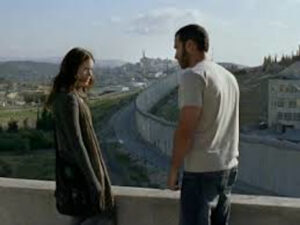
A canvas for many paintings and writings. It has been called the “world’s largest protest graffiti”.
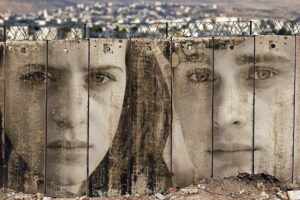
It is punctuated by the intrusive checkpoints, part of the system of West Bank closures in the Israeli-occupied West Bank.
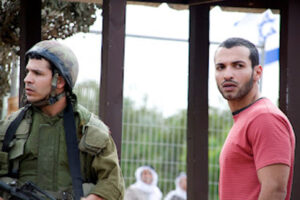
The power of the series’ mesmerising storytelling opens eyes more effectively than any leaked document, any piece of rhetoric, any news bulletin.
‘I agree with you wholeheartedly. Certain subjects – like Palestine, where people are very emotionally affected – can best be effectively tackled with the help of fiction. I only hope I can be as effective through my writing.’
‘And me through my filmmaking-cross fingers. Our people rely on the words and imagery of artists and writers to help us in this unequal, conflict.’
‘The struggle of your people against this is certainly a David and Goliath contest.
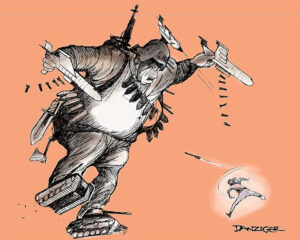
How did the Israeli state justify shutting Palestinians out of sharing responsibility for running former Palestine?’
‘The Israelis argue we had no state and claim that we are a backward lot. They claim their god pointed out Palestine to them as their promised land.
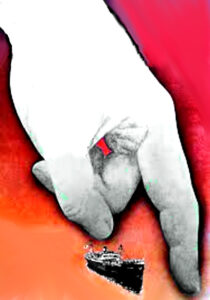
They say they came and brought lots of improvements.’
‘They argue that they came and made the desert bloom. They broke rocks on barren landscapes to build up an agricultural base. They channeled water resources. They carried out a lot of construction.’
‘That they did. And built right across our homeland which we had farmed well enough.’
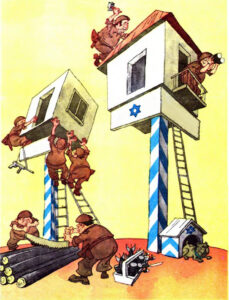
‘That they did. And built it right across our farmland.’
‘You believe even this caused a lot of harm.’
‘From my viewpoint this creation was to the detriment of the Palestinians from the very beginning. The US role in funneling finances there was seen by arabs as a historic betrayal.
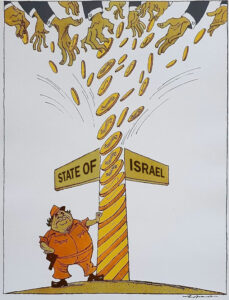
‘From what I can see, the creation has been to the detriment of Israelis as well. They are more often than not living in a state of uncertainty and insecurity. . From the word go they’ve been constantly engaged in military operations uncovering guerilla forces positioned in the most unlikely places.’
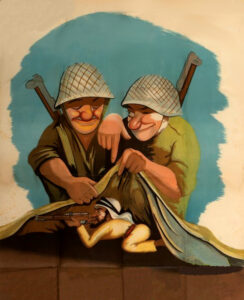
‘Allan, The worse thing is that it created a permanent atmosphere of bad feelings and mistrust between people from both groups. Let me tell you a joke-a more light hearted one- that illustrates this: ‘One sweltering day two Israeli settlers boarded a crowded flight from Ben Gurion International Airport to Cairo. They were flying on a business trip .One sat in the window seat, the other in the dreaded middle seat.Just before take-off a little guy with a small sprig of olive branch-another symbol of Palestinian identity- in his lapel got on. A labourer from the West Bank, he had managed to get a special permit to visit his dying father in the Egyptian capital. Having taken the aisle seat next to the Israelis, after the plane was in full flight, he kicked off his shoes , wiggled his toes and was settling in when the Israeli in the window seat said, ‘The air conditioning’s not working too well here. I feel so dry. I think I’ll go to the bar and get a Coca Cola.’
“It’s too tight to squeeze easily past these seats,” said the Palestinian. “I’ll get it for you.” The Israeli, not wanting to appear condescending agreed. While the Palestinian, not bothering to put his shoes on, made his way down the aisle , the Israeli picked up one of the Palestinian’s shoes and spat in it. When the Palestinian returned with the coke, the second Israeli said, “That looks refreshing. I think I’ll have one too.”
Again, the Palestinian obligingly went to fetch it, and while he was gone the second Israeli picked up the other shoe and spat in it. The Palestinian returned with the second coke, and as the two Israelis sipped slowly on their drinks, all three all sat back and shared an uneventful flight to Cairo.
As the plane was landing the Palestinian slipped his feet into his shoes and knew immediately what had happened.
‘All right, How long must this go on?’ he asked his two fellow passengers point blank. ‘ This intractable insanity—-this enmity between our peoples….. this bitter hatred… this endless, mean spirited animosity… this gobbing in shoes and pissing in drinks?’
‘Fouad, the Israeli spokespersons strenuously deny they ever deliberately harm Palestinian civilians,’ I said.
‘Israel denies mistreatment of Palestinians and claims that they are well provided for even as it crushes and pulverises them.
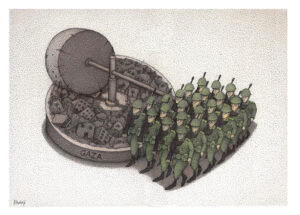
Even as they are laying under rubble.
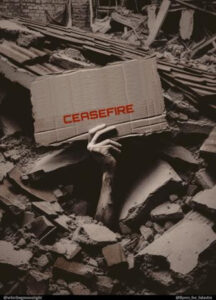
It certainly provides for their burials. It covers everything. It argues that conversely it has represented hope and possibility to the Jewish people after centuries of oppression and Holocaust.’
There’s another side to that version of history. The incoming settlers took out their rage and bitterness on us Palestinians. We refer to the events of 1948 as the Nakba, or catastrophe. In an act of ethnic cleansing many were interned.
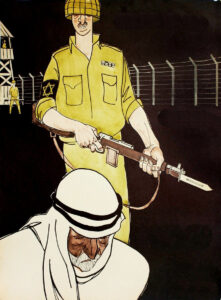
My parents and our family were forced to pack up our belongings and move to wherever we could find.
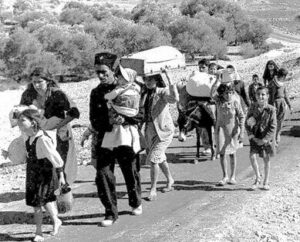
750,000 were expelled from the land in which we have deep roots.
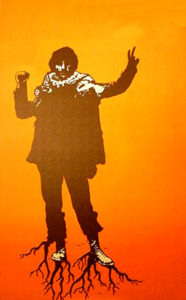
Prevented from being able to return to what is now Israel, our refugees are still scattered across the West Bank and Gaza, refugee camps in Arab states, or internationally.
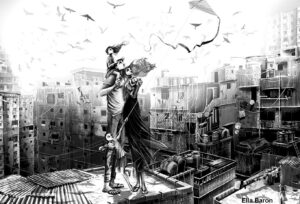
Many have to make do in sprawling. makeshift rows of crowded tents.
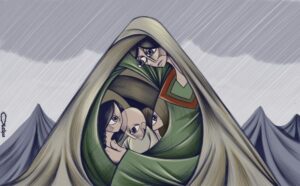
‘That’s how Israel defined the Palestinians’ tiny slice of ‘the promised land’, representing despair and impossibility.
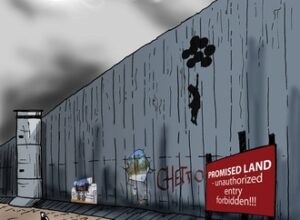
‘Sadly that’s still the case. Many remained — and their descendants still remain — stateless, with few rights and a longing to return to Palestine. Or rather what’s left of it. Our borders keep being pushed inwards, despite Obama having declared there should be a return to pre-1967 lines of demarcation.
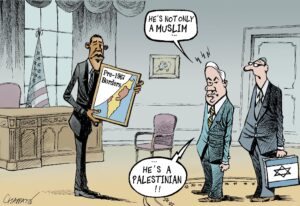
‘It saves us time, as the Israelis point out to us, ‘If you are Palestinian, you don’t need to go to the border. You just wait for the border to come to you.’
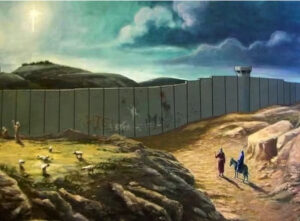
‘ How sharing of them. They’ve given you your very own wall to wail at. What is the significance of the lines of demarcation established in 1967?’
‘Israel became an occupier of our remaining territory, swelling to four times its original size. It crows about its military victory over arab armies then but as a result has to keep a permanent eye out for our insurgency.’

‘It can’t have its cake and eat it, can it. Fouad, what do you think of those Israeli settlers who’ve taken over Palestinian property?’
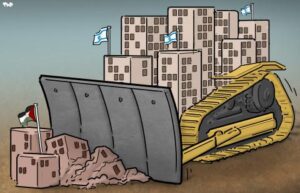
‘To answer that, I’ll ask you another question. ‘What’s the difference between a catfish and a thieving, gypping fundamentalist settler on your ancestral family farm?’
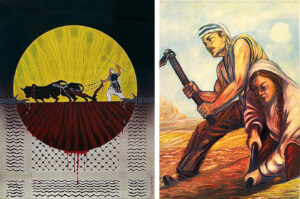
‘You’ve got me there.’
‘One’s a bottom-dwelling scum sucker; the other’s just a fish.’
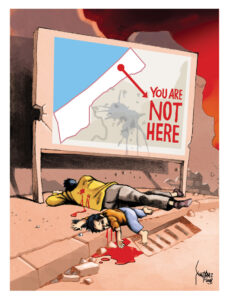
‘I guess you’ve just answered my next question. Are the settlers representative of jewish people?’
‘Not at all. The conflict is not really between jews and Arabs. When I was a kid, before the 1967 war, one of my best friends, Shimon, was from a kibbutz. We passed the time on my family’s watermelon patch, looking out to sea and talking about our dreams and hopes, about our families and communities.
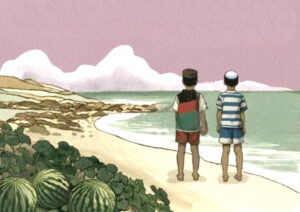
Shimon was from an ultra orthodox religious family and became tired of all the segregationist restrictions this involved. ‘They want to defend their oldest ‘pure and holy’ son from corruption by outsiders. To isolate me from the diverse society around me. To shield me from the sinful influences children pick up from TV, something we’re not allowed to have.’
One day Shimon told me of an idea of his. ‘Why don’t we change identities? I’ll become Palestinian and you’ll become a jew.’

So this boy who normally wore a yarmulke defied his parents and let his hair grow. When we met on the patch, I put on his skull cap. I said to him, ‘would you come with to the market with me to cause a bit of a stir? People will wonder who this young arab boy is. And when they look at me, they’ll think I’ve been converted to Judaism. That will be a real hoot.’
He replied, ‘No way. Someone might tell my parents. They would be furious with me.’
‘Oh come on.’I insisted, ‘It was your idea in the first place. Let’s have some fun. Don’t be such a fraidy cat.’
‘That’s all right for you to say. You don’t know my parents and how strict they are’.
‘Look,’ I kept on, ‘If you come I’ll give you ten shekels.’
‘Shekels! Filthy lucre!’ he cried, ‘Is that all you people ever think about?’
‘We also think about literature and music. But first things first. Business is business.’
‘So you reject the notion that Jews and Palestinians are incompatible, Fouad.’
‘Very much so. The conflict is between the last vestige of settler colonialism, officered by the jewish supremacist elite and bankrolled by the United States, to keep down an oppressed people. In Gaza it controls every aspect of Palestinian lives, including the power supply.
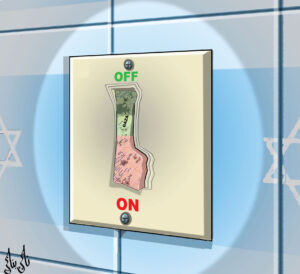
Yet many, if not most jews are compassionate, considerate people who abhor what is being done in their name.’
‘I’m glad you see it like that. The way I see it there’s a good core of jews, who like arabs, are extremely clever, talented and honest. But oy gevalt—the others! Their messianic fundamentalists, extremists and supremacists.
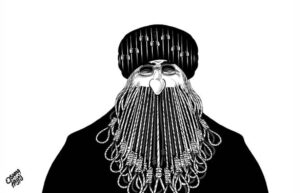
Their minds are just as sick and twisted as those on the side of Islamic extremists–or any extremists.

But it’s ordinary civilians who bear the enormous burden of ongoing trauma in the years afterwards which is then passed on to their families.’
‘Why is this nightmarish situation continuing? Haven’t there been endless talks between Israelis and Palestinians?’’
‘Talks between a heavily militarized state and a occupied people can’t be fair with such a fundamental power imbalance.
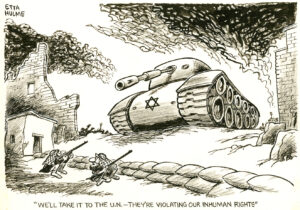
The spontaneous attempts by our youth to confront and shake off their military force have been heavily crushed.
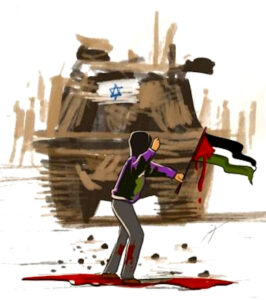
After years of discussions , we’re still not any closer to a two-state solution and respecting U.N. General Assembly Resolution 194. Mr. Keating’s Foreign Minister Evans supported it. It calls for repatriating hundreds of thousands of Palestinian refugees forced to flee in 1948. Alas Israel still rejects these steps and so our peaceful protests have gone unheeded.
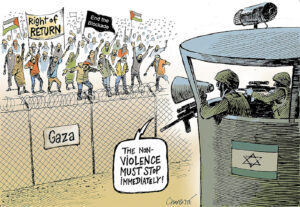
What chance do have Gazans have being behind so much barbed wire and so many barriers ?
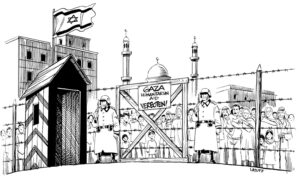
When the Israelis rain down their bombs on us, it’s worse than being in one of their prisons.
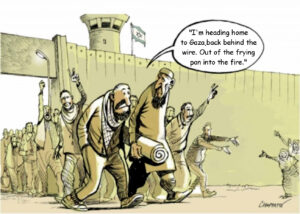
How to stay the hand of this combined imperial force?
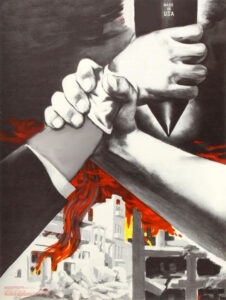
The spectre of violence hangs darkly over the lives of both Palestinians and Israelis. The trauma of terrorism lingers on. Palestinians are physically scarred, mentally marred and the survivors take it hard. There seems no end to the violent retaliatory exchanges between Israel and Hamas. They feed off each other.
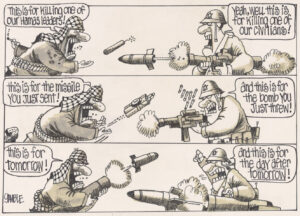
This very idea of debating equivalence of violence is anathema. Nonviolence should always be the top priority in resolving disputes. Once one or both sides devolves into violence, all their violence can be rationalized. All their violence.
The failure to negotiate a just settlement has left deep scars on both the Israeli and Palestinian collective psyche. Gaza, and the Hamas government with it, remains under a tough blockade.’
Yet Netanyahu persists in declaring that Israel wants peace.’
‘Yes, on Israel’s terms as usual.’
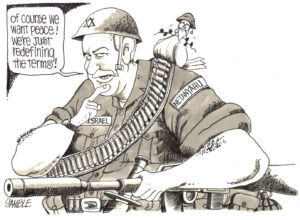
‘And what are those terms?’
‘His trick has been to redefine what parts of the occupied territories count as a “specified military site” under the Oslo accords. the US-sponsored peace process between Israel and the Palestine Liberation Organization. By maintaining the extent of these sites as far as possible, he can argue the necessity of preventing further withdrawals. Netanyahu is as firmly committed today as ever to destroying any chance of peace with the Palestinians.’
‘So how does this go down in Washington?
He dismisses the US as “easily moved to the right direction” adding ‘they won’t get in our way’. In an unguarded admission secretly recorded and televised, he bragged how he deceived the US president, Bill Clinton, into believing he was helping implement the Oslo accords. In actuality he was making minor withdrawals from the West Bank while actually entrenching the occupation. He boasted that he thereby destroyed the Oslo process.’
‘He knows how to play only one tune. ‘One Note Sombre.’
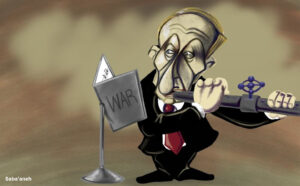
‘He gave what amounted to a campaign speech in the U.S. Capitol, as if it was his own capitol, calling on the members of Congress to vote against their own president in the interest of his country.’
‘He’s certainly got some cheek.’
‘He also suggested that, far from being defensive, Israel’s harsh military repression of the Palestinian uprising was designed chiefly to crush the Palestinian Authority led by Yasser Arafat so that it could be made more pliable for Israeli diktats: “The main thing, first of all, is to hit them. Not just one blow, but blows that are so painful that the price will be too heavy to be borne.
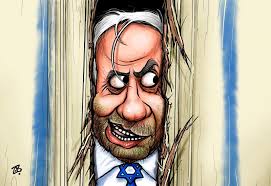
The world will say nothing.”
‘So his trick has been to ostensibly make public concessions to the US administration — chiefly by agreeing in principle to the creation of a Palestinian state, consenting to indirect talks with the Palestinian leadership in Ramallah, and implementing a temporary freeze on settlement building. Then to go back on all these while at the same time enlisting the powerful pro-Israel lobby to exert pressure on the White House, which appears to relent on its most important stipulations. He says that his ultimate aim is that Israel will permanently occupy all the territory “from the river to the sea.”
‘He’s a real con artist if ever there was one.’
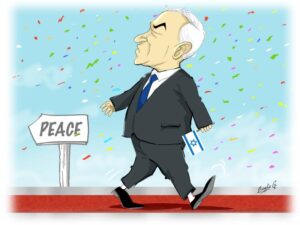
That’s what the Israeli columnist Gideon Levy calls this mighty manipulator. ‘A man who thinks that Washington is in his pocket and that he can pull the wool over its eyes. Even after the IDF systematically fatally targeted seven aid workers in Gaza, the State Department repeated it had not found any incidents where the Israelis had violated international humanitarian law. Netanyahu has likened the state of Israel to a “mighty aircraft carrier” of the United States.’
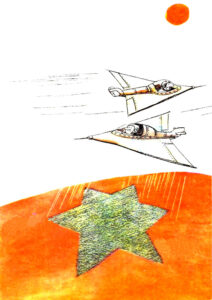
‘ With his half-truths and duplicitous bluffs, he’s a man who takes as much as he can and gives away as little as possible. His approach to White House demands, he says, draws on his grandfather’s philosophy: “It would be better to give two percent than to give 100 percent.’
‘Hopefully things will improve when he’s gone.’
‘We have to be careful not to fall into that trap of putting it all on one person and thinking that if one person is replaced, somehow that’s an answer. The decisions Netanyahu makes about war are systemic ones of the Israeli leadership. This is not a one-man show. We have to be very clear that the people who are likely to replace him, if he were to either resign or be recalled in an election, they all support this ongoing state of war.’ We have to be very clear that the people who are likely to replace him, if he were to either resign or be recalled in an election, they all support this ongoing conflict.’
‘It’s hard to be hopeful about the situation in Palestine, Fouad,’ I said.
‘Yes, it is regrettably. The situation reminds me of that old joke about the optimist and the pessimist. The pessimist says “everything’s terrible, it can’t get any worse.” The optimist says “oh yes it can.”
If we could have fast forwarded to the 2023 barbaric events in southern Israel and Gaza, Fouad would have seen how much worse and how savagely the enclave would be laid waste to . The mind is overwhelmed by the scale and the pace of the destruction in Gaza, the likes of which we have not witnessed at any point in recent memory.
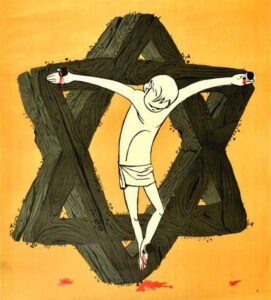
It would give rise to the blackest of jokes: ‘They say there is safety in numbers. Tell that to the million Palestinians corralled into the south of Gaza, their homes, schools, hospitals ,ambulances blown to pieces, their children slaughtered in the thousands, their medical workers and journalists killed by the hundreds, their families starved to death.’
Some would despair at the unbearable sight of an out of control war machine earning a world record in killing protected categories of personnel.
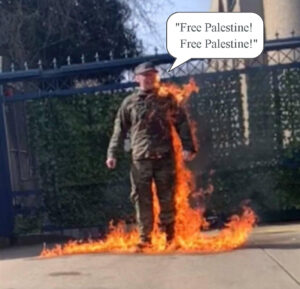
As the eyes of the world were on Fouad’s homeland, recoiling at the excesses of the IDF as they were being live streamed, the drum beats of war would grow fortissimo yet again.
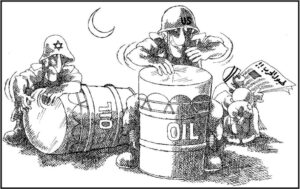
Humanity would shudder and forever would shudder in face of this sickening spectacle. Fouad would have seen the grieving and stress on the faces of those in in the street outside the closed down café. Tony Burke would describe the chilling effect: ‘I go through the suburbs across from Belmore, Lakemba, where I live in Punchbowl through to Bankstown, pretty much everybody knows somebody who has lost someone.’

The all out offensive would take on ever frightening dimensions.
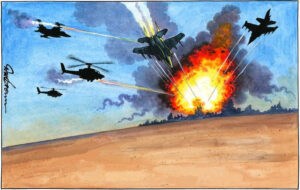
Any semblance of the rule of proportionality requiring the attackers to avoid killing civilians would be dispensed with.
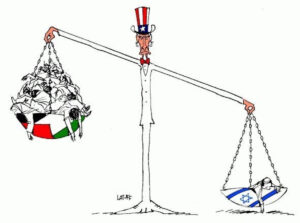
Thinking attentively about the criminal practice of collective punishment would bookend my initiation into the world as an emerging adult and my winding down into the twilight years.
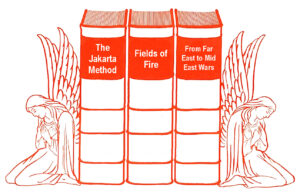
While the turkey shoot conducted out of sight in Indonesia was on a scale unparalleled since World War 2, that perpetrated by Israel against the Palestinians would be on-air and in real time, carried out in full view of the world.
It would be in 2023 that Paul Keating would be treated to what I see as one of the biggest jokes of our lifetime. Paul would be requested by Mark Leibler, a behind the scene Zionist influencer, to join other former PMs in supporting Israel’s cataclysmic scorched earth campaign against Hamas, one of the two ‘teams’ in “our military operation’ as Biden puts it.
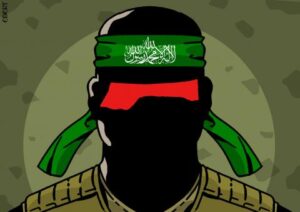
This would mean an unprecedented, indiscriminate assault on Gaza. The war we had to have. The policies of the far-right Israeli government enabling settler violence in the occupied West Bank and Jerusalem would lead to a sense of desperation among Palestinians and growing pressure for a reaction.
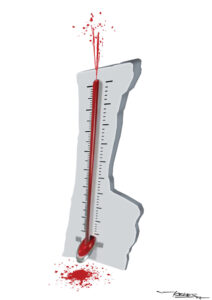
This would give the Hamas ‘team’, judging these circumstances to be favourable, both a justification and an opportunity to attack once it broke out of its containment .
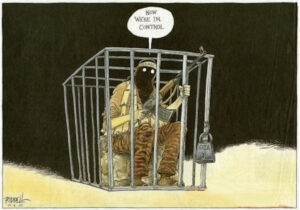
They felt pent up and were chafing at the bit, hellbent on evening the score.
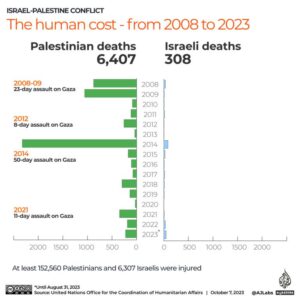
The group of armed irregulars, numbering in the low tens of thousands, besieged and with little access to advanced weaponry, would take on one of the world’s most powerful militaries, backed and armed by the United States. They neutralized Israeli military installations, breaking open the gates of the world’s largest open-air prison and leading a gruesome rampage. The carnage was not totally surprising. By the Occupation Force team taking its eye off the ball, Israeli soldiers received shocking injuries and deaths.
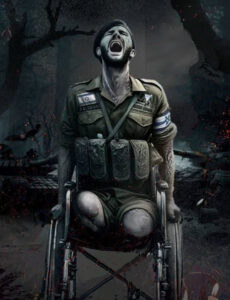
Civilians had to flee for their lives.
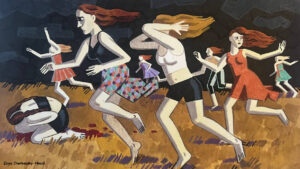
When people are treated in a beastly way, they tend to respond in like manner.
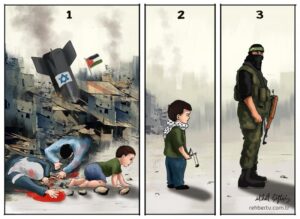
When they are dehumanised they tend to react the same way accordingly. Not that that excuses their crimes.
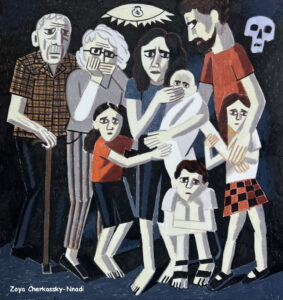
Israel’s assumption of security shaken to the core, The IDF followed to the next level its well rehearsed doctrine of massive, overwhelming force in responding to irregular war, causing extensive social and economic damage, undermining the will of the insurgents to fight while deterring future threats to Israel’s security.
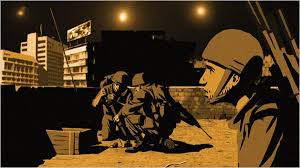
Former Prime Minister Ehud Olmert accused Prime Minister Benjamin Netanyahu and his gang of ‘hilltop’ settlers of knowingly steering Israel into an all-out war. He said that for them ‘Gaza is only the beginning – they are aiming for “Armageddon, that will make it possible to expel many of the Palestinians in the West Bank.’
David Ivry, former Israel Defense Forces deputy chief of staff expressed his concern for his nation’s future security: ‘I am familiar with this dynamic from Lebanon . We are in a place that we conquered, people get used to the situation and we gradually shift from being conquerors to being targets. And this time it’s more serious than it was in Lebanon, because of the ‘Metro’ [labyrinth of underground tunnels] and other subterranean [infrastructure in Gaza]. The question is how long we’ll be able to ride it out.’
The Doctrine of Overkill.
The massive devastation that is overwhelmingly slaughtering Palestinian civilians may seem like madness on the part of Israel but remains part of a calculated strategy. Israel’s iconic late Defense Minister Moshe Dayan who had observed how the US applied the doctrine in Vietnam once said “Israel must be like a mad dog, too dangerous to bother.”

He rarely knew restraint even when the idea of it stared him in the face.
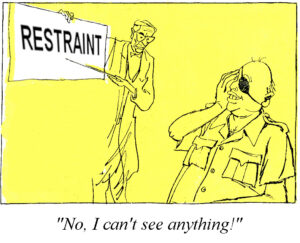
This rabid mindset presumably was what propelled his units’ fanatical, raging behaviour in the 1967 wars.
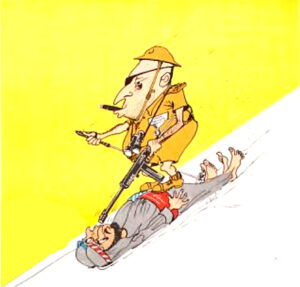
Variations on this idea have been repeated by Israeli officials time and again. Former Defense Minister Pinhas Lavon, the initiator of the false-flag terror attack on Cairo in 1954, advocated “going crazy” if ever Israel were crossed.

Prime Minister Yitzhak Shamir stated to a group of Israeli West Bank settlers in 1988 that “the Palestinians” would be crushed like grasshoppers … heads smashed against the boulders and walls.”
During the 2006 war with Lebanon, Prime Minister Ehud Olmert said Palestinians need to understand that “the master of the house has gone mad,” while promising “James Bond type operations, bim bam!”
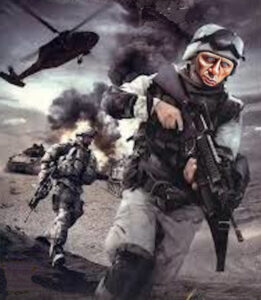
After Israel’s 2008-9 Gaza onslaught, Operation Cast Lead, Israel’s Foreign Minister at the time, Tzipi Livni, stated that “our troops in the Gaza strip behaved like hooligans, which I demanded of them.” She also stated that Israel “is a country that when you fire on its citizens it responds by going wild — and this is a good thing.”
Benny Gantz, when he was army Chief of Staff and pulverizing entire neighborhoods during the 2014 Gaza onslaught, boasted of returning Gaza to the “stone age.”
This “methodical madness” has been central in Israeli thinking across the political spectrum throughout Israeli history and has now been translated into flattening entire civilian neighborhoods as a norm. Former Justice Minister Ayelet Shaked during the 2014 onslaught on Gaza, suggested that Israel’s enemy was the entire Palestinian people:
“Behind every terrorist stand dozens of men and women, without whom he could not engage in terrorism. Now this also includes the mothers of the martyrs, who send them to hell with flowers and kisses. They should follow their sons, nothing would be more just. They should go, as should the physical homes in which they raised the snakes. Otherwise, more little snakes will be raised there.”
Major General Giora Eiland, former head of the National Security Council and current advisor to the Defense Minister has spelled out genocide more explicitly: “Let’s not be intimidated by the world,” he declared, clarifying that the whole Gazan civilian population was a legitimate target and that even “severe epidemics in the south of the Gaza Strip will bring victory closer. ‘Israel is not fighting a terrorist organization but against the State of Gaza,’ he adds, ‘therefore Israel must not provide the other side with any capability that prolongs its life. And no, this is not about cruelty for cruelty’s sake, since we don’t support the suffering of the other side as an end but as a means.” In 2004, as head of the National Security Council, he regarded the Gaza Strip as “a huge concentration camp”.
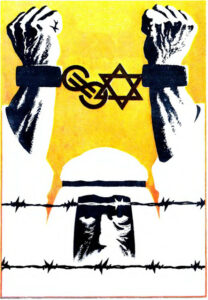
He advocated for the U.S. to force Palestinians into the Sinai Desert.
The problem for Israel pursuing its knockout punch of the Palestinians is that it still hasn’t worked. As an occupying force, it would have paid off for it to have remembered the lesson Golda Meir learned from the 1973 Yom Kippur War. When you’re surrounded by enemies you’ve made, you can never let your guard down.
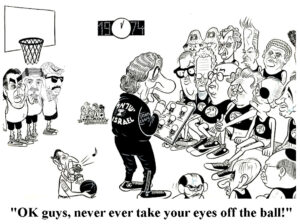
For its part, the IDF would have done well to learn from Dayan’s travels in the swamps of Vietnam.
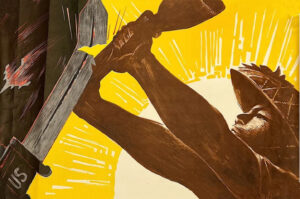
The shocking ease with which Hamas breached Israeli lines around the Gaza Strip reminded me of the 1968 Tet Offensive. Not literally—there are vast differences between it and the ‘Tit for Tat Offensive’. Between a US expeditionary war in a distant land and Israel’s war to defend an occupation at home, waged by a citizen army motivated by a sense of existential peril. Instead, the usefulness of the analogy lies in the political logic shaping an insurgent offensive.
The Vietnamese leadership measured the impact of its military actions by their political effects rather than by conventional military measures such as men and materiel lost or territory gained. Thus Henry Kissinger’s 1969 lament: “We fought a military war; our opponents fought a political one. We sought physical attrition; our opponents aimed for our psychological exhaustion. In the process we lost sight of one of the cardinal maxims of guerrilla war: The guerrilla wins if he does not lose. The conventional army loses if it does not win.”
Israel seems to think that Palestinians will blame Hamas for their misery. They won’t. The opposite is more likely. When people are under bombardment and siege they rally around those fighting for, and dying with them. Hamas’ own culpability for provoking the disaster doesn’t matter. To the extent any Gazans blame Hamas for their predicament, they cannot speak freely when under attack, and the shared humanitarian disaster undermines rather than increases their ability to protest.
The dynamics of group psychology.
“The Irish people are deeply troubled about the catastrophe that’s unfolding before our eyes in Gaza. And when I travel the world, leaders often ask me why the Irish have such empathy for the Palestinian people. And the answer is simple: We see our history in their eyes, a story of displacement, of dispossession, a national identity questioned and denied, forced emigration, discrimination and now hunger.
Leo Varadka, Irish Prime Minister.
In declining to sign the joint statement , Paul Keating would comment, “I can do better than groupthink”. He was only too aware his invaluable legacy was on the line. He rejected making any decision where history would cast a permanent and shameful shadow over it.
Paul knows groupthink is not always problematic. In the best cases, where the group is cohesive it can allow it to make decisions and complete tasks quickly and efficiently.
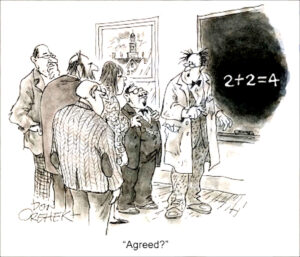
However he knows that in the worst cases, it leads to poor decision-making and inefficient problem-solving. He knows that this thinking by those with very different viewpoints as a group can result in particularly in unchallenged, decision-making. According to a report from The New York Times, Israeli intelligence had obtained more than a year before the Hamas attack a 40-page document detailing virtually the exact attack plan that Hamas executed .
Groupthink is a phenomenon in which individuals overlook potential problems in the pursuit of consensus thinking. The members deceive themselves. in a group setting, people defer the hard work of reasoning to others, whom they assume must be working on the problem. As a result, no one works on the problem, and whatever decision emerges derives from the dynamics of group psychology. The unconditional embrace of Israel’s war by Western governments is rooted in the delusion that Israel is just another Western nation peacefully going about its business before it suffered an unprovoked attack on October 7—it’s a comforting fantasy to those who prefer to avoid recognizing a reality they’ve been complicit in creating. Israel thinks that by killing lots of civilians to destroy their designated enemy, that will be the end of the matter. That the hatred generated will be forgotten.
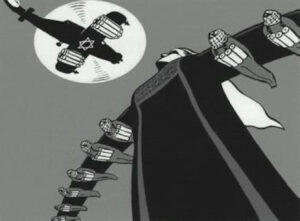
They cannot fathom the sense of despair that many Palestinians feel, especially as the brutal and unbalanced battle kills more and more civilians. They cannot comprehend the damaging effect on children who have witnessed these unspeakable acts.

They cannot recognise the generosity of spirit that can permeate Palestinians as it can jews. Like that of Ahmed Alnaouq who declared after at least 20 members of his family were killed in Gaza : ‘I am very, very, very proud, and all of us are very, very, very proud of the Jewish community who challenge the stereotypes, who challenge the Western media, and who challenge the disinformation and misinformation about what’s going on in Palestine and Israel.’
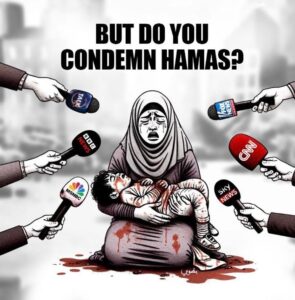
Groupthink members are fooling each other that by killing thousands of Palestinian children , Israel will appear the eyes of the world as strong guys defending their country .
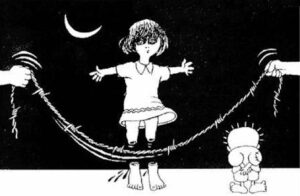
They are sadly mistaken.
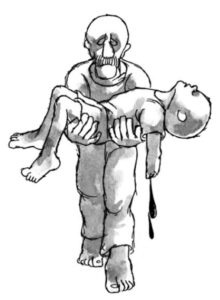
Groupthink occurs when a group ignores logical alternatives, reaches flawed conclusions and makes irrational, emotionally based decisions. Driving the Gazans out of their homes sounds appealing to Israel but the fact the Gazans have nowhere to escape to doesn’t seem to enter into their calculations.
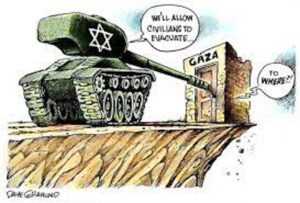
What does enter their calculations is the great fortunes they’ll make if they do expel the Palestinians into the desert. This brazen real estate estimation is reminiscent of that which led to America’s First Nations People being displaced from their ancestral homeland. Licking his lips, Trump’s advisor and fellow property tycoon Jared Kushner praised the “very valuable” potential of Gaza’s “waterfront property”. He suggested Israel should ‘move the people out’, while it “cleans up” the strip. As for the Palestinians having their own state, Kushner describes this as a ’super bad idea.’
By constantly rejecting calls for an end to hostilities may lead Israel to portray itself as resolute and determined. But why can’t it heed the words of peace activist Vivian Silver who would be killed by Hamas: “We must reach a political agreement.

We must change the paradigm that we have been taught for seven decades now, where we’ve been told that only war will bring peace. We don’t believe that anymore. It’s been proven that it’s not true.”
What’s true is that there can be no long term, meaningful peace for Israel without one for Palestine.
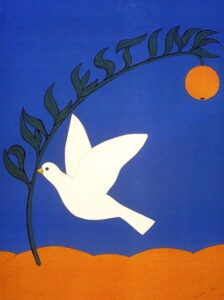
Why can’t heed the words of people like Avner Wishnitzer, former member of one of the IDF’s elite commando units. He says ‘a military solution is a very dangerous fantasy’.
While IDF easily outweigh Hamas fighters in Gaza, they have to battle in urban jungles, tunnels and booby traps , getting picked off by mines, ambushes and snipers.
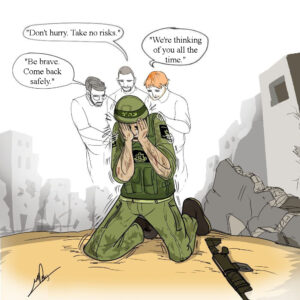
On top of this soldiers have to contend with the moral weight of knowing their forces are killing many innocent civilians.
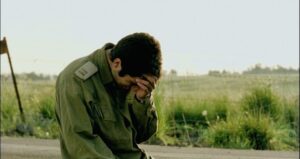
Avner’s service really brought him ‘face to face with the systematic oppression’ of Palestinians. His later decisions and actions were influenced by that experience. It not only taught him valuable lessons about command and politics, it also caused him to re-examine his professional and personal goals. It shaped his perceptions of the relationship between the colonial settlers and the Palestinians. Avner emerged from the experience as a less naïve person as I had from my own experience of the Vietnam War as a non-combatant. Avner decided to unite with activists amongst Palestinians seeking an end to hostilities.

It brought him into partnership with his friend Sulaiman Khatib, veteran habitué of Israeli jails and participant of hunger strikes therein.
Once decisions are made, the groupthink body assumes them to be unanimous.
Why do Knesset parliamentarians want to expel Ofer Cassif who lost friends in what he calls the ‘morally despicable’ 2023 Hamas assault? For most of his fellow parliamentarians his public acts of defiance have gone down like a red rag to a bull.The firebrand jewish politician has taken a bold stance against the genocide he says his country is perpetrating in Gaza. Ofer spent time in jail for refusing to serve as a soldier in the occupied territories. He has marched in solidarity with Palestinians and protested against their being evicted.

He said of those attacking him, “They simply cannot tolerate, and they wouldn’t like to accept that I, and everyone else, can show sympathy and empathy for the innocent people in Gaza. At the same time that one shows sympathy and care for the people of Israel. It’s not a contradiction.”
Members may rationalise potential warning signs that should cause group members to question their beliefs. For example Israelis can ignore at their own peril the threat their actions place not just to the Palestinians but- as Australia’s Foreign Ministers Evans and Carr pointed out- to the jewish people. They may stereotype contrary viewpoints leading members of the group to reject perspectives that question or challenge the group’s ideas. When coming under fire they can fall back on smearing critics as being anti-semitic rather than anti-supremacist. This has the effect of silencing them.

It stifles recognition of the facts.
When that phrase was used during and after World War II, it had a gravity following the Jewish Holocaust. It elicited sympathy, support and grief. It’s increasingly becoming an object through its reckless use of subdued derision.
Those wielding it may dismiss criticisms of their policies by members of their own faith as ‘self hating jews’. In this category belongs Ruth Ben-artzi, niece of Benjamin Netanyahu.
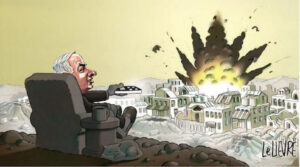
When asked by the Israeli newspaper Haaretz why she chose to speak out for a cease fire, she would say, quote, “The answer is that I am ashamed, sad and angry. Ashamed that my relatives have no shame. That they are in a position of power that promotes and encourages violence, racism, nationalism and fascism. These are not the Jewish values I absorbed and to which I feel connected. Israel could remain a country in which Jews find a safe and free haven of equality and partnership with all the population groups within the state’s borders.”
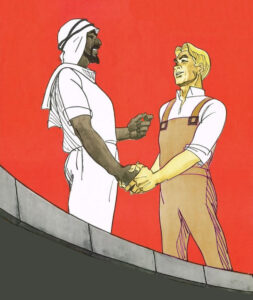
Ruth is a very brave and honest person. All honour to her.
Disturbing warning signs conveyed by the extent of Israel’s civilian kill count, the spreading of conflict throughout the Middle East and Netanyahu’s lack of good faith would eventually cause Biden to gradually re-consider US ironclad support to Israel.
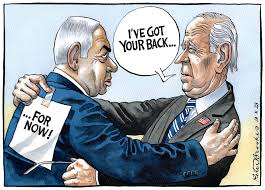
The groupthink body tends to ignore the suggestions of anyone outside the group. Former PM Abbott said he did not know why Keating declined to be a part of the letter. Abbott never considered that small matter of crimes against humanity. Not everyone wants to be complicit in aiding and abetting a state that kills one child every ten minutes over the length of the siege.
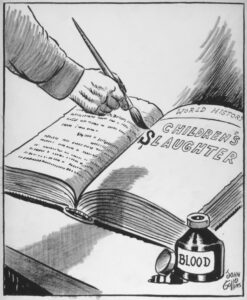
Group members may reject inconvenient questions or raise objections that may be seen as evidence of disloyalty by others. This can lead members of the group to ignore dissenting viewpoints, to hide their own doubt and conform. They may not realise the arab in the street sees US backing of Israel as blood money.
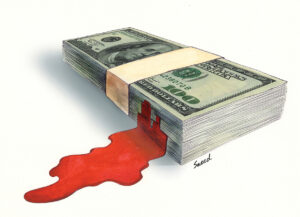
They may not consider the threat to an Israeli society informed by human values that are getting lost as the country gets enveloped in genocidal cries. Concerns over adding to the ever expanding numbers of Palestinians refugees being created are dismissed out of hand.
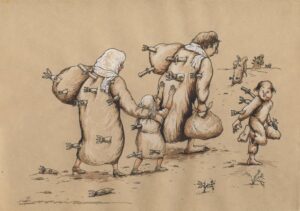
This enforces the illusion that the group’s decisions are superior to individual judgment, and that any opposing views are contrary to the group’s interests.
The group may have an illusion of invincibility and consider that nothing the group decides to do can go wrong. Illusions of invulnerability and infallibility can lead group members to engage in unjustified risky behaviours with an overly optimistic hope of success, fostering complacency and ignoring any possible negative outcomes. They may be convinced that Team Occupation Forces is invincible so that by supporting it, they will increase its chances of finishing off Palestinian resistance.
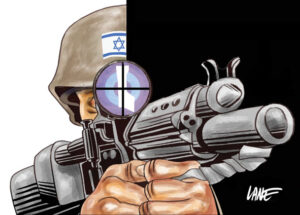
Whether we like it or not, the fact is that Hamas destroyed the myth of Israeli invincibility, that Israel is impenetrable, at least from the Gaza Strip, and that its army is unparalleled. They should keep in mind the effect of groupthink in prolonging the war against Vietnam.
In groupthink members can become so convinced their cause is right and just, they ignore any moral quandaries of the group’s decisions. Mr. Leibler stated that the letter supporting Israel’s military offensive ‘sends a message to the world that Australians understand what is right and what is wrong and will not stand back when leadership is needed the most’. The implication was that Paul Keating was not showing leadership when in fact, from a humanitarian perspective, the contrary is true. Mr. Leibler’s son also implied the same when lionising the signatories as being ‘leaders of moral principle’. Another Zionist colleague declared, ‘The public letter is a fine example of the role former leaders can play by using their respected positions to engage constructively.’
Any dissenters in the group who may attempt to introduce a rational argument are pressured to come around to the consensus. In Paul’s case he was even reported by the Melbourne Herald Sun News limited to be signing when there was no foundation to this.
Groupthink is particularly dangerous in political situations where no single actor has all of the relevant information. The Bay of Pigs, the invasion of Iraq and the escalation of the Vietnam War are all considered possible consequences of groupthink. A leaked document from Israel’s Intelligence Ministry dated less than one week after the October 7 Hamas attack would propose the permanent transfer of Gaza’s residents to Egypt.
Because individual critical thinking is de-emphasized or frowned upon, those involved may self-censor and not suggest alternatives for fear of upsetting the status quo. Illusions of unanimity among key decision-makers may cause them to doubt their own misgivings. The illusion that members of the group are in agreement may cause them to ignore potential dangers or take excessive risks. In military or political situations, groupthink can sometimes result in disasters or unethical actions because there is high pressure to agree with the group’s consensus.
It seems to be the case that groups of intelligent people sometimes make the worst possible decisions based on several factors. For example, the members of a group might all have similar backgrounds that could insulate them from the opinions of outside groups. One of the key factors is group identity: when there is a strong sense of shared identity, group members may place a higher value on on in-group perspectives and disregard those perspectives from outside the group. The six former PMs who would sign supporting Israel all had experienced the inevitable sense of importance that accompanied their former roles as leaders.
Information levels and stress may also contribute to groupthink, causing group members to act irrationally. One factor in Netanyahu deciding on an unprecedented, indiscriminate assault on Gaza may be his desire to divert attention away from criminal charges against him.
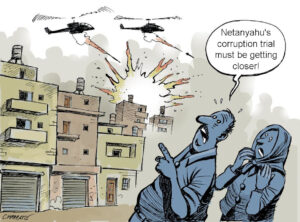
Like Hamas, Netanyahu wants the world to accuse Israel of genocide and apartheid, violent occupation and ethnic cleansing” so that Israelis and Palestinians both believe “the world hates or ignores us, and they are the only one who can save their people.
If members of the group lack information or feel that other members are better-informed, they may be more likely to defer to others in group decision-making where there is a strong pressure to arrive at the correct decision. This pressure may lead some members of the group to withhold key information, in order to avoid undermining the sense of group agreement.
At the height of the 2023 onslaught Israeli prime ministerial advisor Mark Regev would try to suggest that children killed in the Gaza Strip may have died by some other means than by Israeli bombing. He lacks totally twenty-twenty hindsight.

He would claim that ‘Hamas controls all the images coming out of Gaza’.
Disregard for reality would lead the White House press secretary to seemingly compare pro-Palestine activists to the white supremacists who marched in Charlottesville. Many of the former are jewish.
The joint letter would be overtly about attacking Hamas but wouldn’t disclose the role Israel played in grooming it. In 2009, Avner Cohen, a former Israeli religious affairs official who worked in Gaza for over 20 years, told The Wall Street Journal, quote, “Hamas, to my great regret, is Israel’s creation.” Another former Israeli official, Brigadier General Yitzhak Segev, said he was given a budget to help finance Islamist movements in Gaza to counter Yasser Arafat and his Fatah movement. Another former Israeli military official, David Hacham, said, quote, “When I look back at the chain of events, I think we made a mistake. But at the time, nobody thought about the possible results.”
When Hamas was established in 1987 and became a political party and a military party that was engaged in active resistance against Israel’s occupation-the driving force behind the conflict and the reason for perpetuating it- the policies within the Israeli government shifted. Obviously it became less open to allowing Hamas to function. However, that did not deter Israeli authorities from encouraging and promoting divide-and-rule tactics between Hamas, the Islamist national movement, and secular nationalism around Fatah. This has always been a tactic that the colonial forces have used globally, and Israeli colonialism is no different. So it has directly and implicitly attempted divide-and-rule policies.
This really turned and came to a head in 2007, when Hamas, after winning democratic elections in 2006, rose to power. Following the abduction of an Israeli serviceman, the Israeli Air Force attacked the only electrical power plant operating in the Gaza Strip.
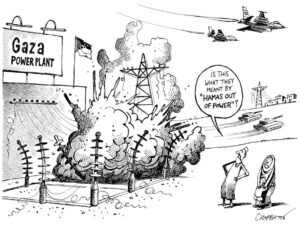 Subsequently the Israeli authorities, along with the U.S., attempted to initiate a regime change operation, which facilitated a civil war between Hamas and Fatah.
Subsequently the Israeli authorities, along with the U.S., attempted to initiate a regime change operation, which facilitated a civil war between Hamas and Fatah.
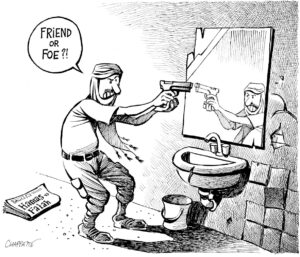
This allowed Hamas, seeing Fatah even more as a feckless adjunct to Israeli military authority, to take over the Gaza Strip. Since then, Israel Israeli authorities actively embraced the idea that Hamas would be accepted as a governing authority in the Gaza Strip. Now, part of the calculus in that is because of Gaza’s 2 million Palestinians. This is a demographic issue. In order to reinforce its claim that it’s a Jewish-majority state, Israel wants to remove the Gaza Strip from the rest of historic Palestine.

By getting rid of 2 million Palestinians, two thirds of whom are refugees demanding return, Israel can claim to be both a Jewish state and a democracy and restructure what is its apartheid regime. In order to do that, it acquiesced to maintaining Hamas in governance, and it claimed that it placed a blockade around the Gaza Strip because Hamas was in power.
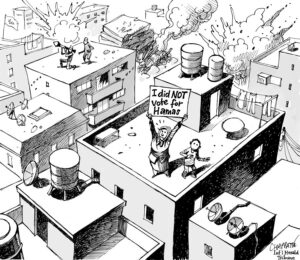
And obviously this would be bought in the international community, using the idea that would be bought by six former Australian Prime Ministers that Hamas is pure and simple a terrorist organization, part of an axis of evil, and, therefore, that this blockade makes sense.
There’s been this decades long attempt to seek to show the Palestinians as somehow not having any legitimate grievances of their own, as always acting on behalf of someone else’s agenda rather than on behalf of their own rights and interests. You know, it used to be they used to be Soviet proxies. Then they became jihadists. Now they’re Iranian proxies. Who knows what they’ll be tomorrow? But even if Iran didn’t exist, this conflict and this Palestinian struggle for freedom and liberation would essentially be undiminished
Undoubtedly Hamas would unleash horrific terror upon the people of southern Israel. And Israel would respond in like manner, if only on a larger industrial scale, threatening Gaza’s very life.
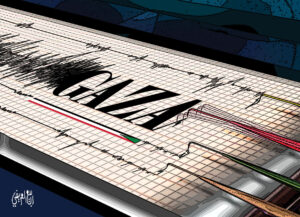
.Does Hamas want to see many Palestinians killed as Israel claims? This contradicts the other claim of Israel that Hamas is using Palestinian civilians as human shields. If that is the case, sacrificing their own people would mean there are less to hide behind.
Israel likes to think that the Palestinians get some perverse kick out of being persecuted. It doesn’t like to see Palestinians as competitors with them in the victimhood stakes.
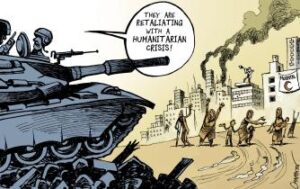
They themselves pile on the holocaust guilt so the West can back them to the gilt-edged hilt.
In groupthink high-stress situations can contribute to poor decisions, by reducing the opportunities for careful discussion. Group members might not be able to make rational decisions when they believe that they are under urgent pressure for immediate action. Such was the case when the vengeful US war cabinet rushed its military forces into Afghanistan. Such would be the case in supporting Israel rushing impatiently to take revenge at any cost and without pausing for reflection. Following it in that manner would be a case of the blind leading the blind towards an even more perilous precipice.
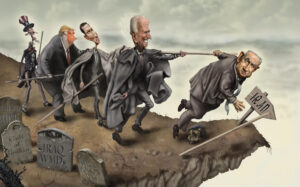
These would likely be the considerations behind Paul Keating’s decision to abstain from signing. He would turn down the invite very diplomatically and with great circumspection. . He knew only too he could attract charges of being anti-semitic from hardline Zionists coming after him. They accuse their critics of this whereas the critics are actually expressing their anger at Israel’s heavy-handedness.
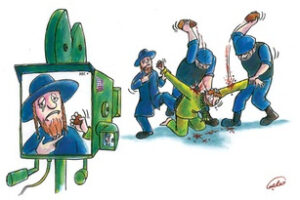
Sure enough the hard line Zionist backers would come after PM Albanese and Foreign Minister Wong. They would demand from the IDF ‘full accountability’ for the pin point killing of aid workers in Gaza, including Australian Zomi Frankcom’.

They were echoing the outrage of President Biden and that over the dismissive response of Netanyahu who said, ‘This happens in war.’ They called for the recognition of Palestinian statehood as a step towards the long sought after two state solution.
The ‘Australian’ newspaper would label them as dupes falling into the hands of terrorists. It claims the ALP is helping Hamas win the propaganda war. In fact it’s being lost by Israel .
Mark Leibler’s son would say their decision threatened Israel’s security and was a reward for Hamas. He would express ‘deep concern and confusion’ over the appointment of former ADF chief Mark Binskin to oversee Israel’s investigation into the killings.
The leader of the Liberal Opposition, Peter Dutton, would jump on the bandwagon of confusion. He would liken the social significance of a heated pro-Palestinian protest at the Sydney Opera House to the massacre at Port Arthur.
No one was hurt at the Opera House. 35 people were killed at Port Arthur.
Paul Keating would respond to Mark Leibler by describing the letter as being too “sharp”, or biased, even after it was adjusted to make it more ‘even-handed’ or ‘balanced’.

I know that if he had spoken his mind, how he could have done better in his exchange with the Zionist spokesman.
To exercise power and influence, Mr. Leibler says, “it’s terribly important to put oneself into the shoes of the guy you’re talking with—-a prime minister or a senior bureaucrat.
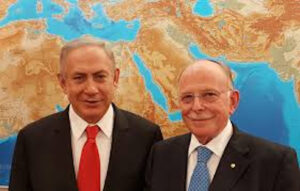
What is it that they’re thinking? What are their positions and how far are they going to go to accommodate you? It’s important to understand how things work.”
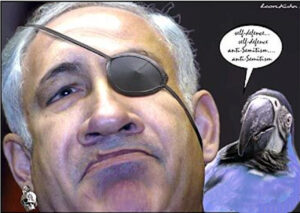
So taking my cue from Mr. Leibler, getting into character, I put myself in his shoes and those of Paul Keating. I wanted the words or at least the unsaid thoughts of the familiar Paul Keating, the political scrapper – pugnacious, reflective, funny, as well as the wise words of the senior political patriarch – to burst through. The joke would have gone something like this, I imagine: ‘ Mr. Leibler dropped in on the boy from Bankstown to ask a favour: ‘Paul, On behalf of our other former Prime Ministers I’m calling on you to join them as signatories in a concerted effort to defuse tensions and bigotry in our nation. We’re calling on you to join us in adding to our message of love and respect for Israelis- and Palestinians I might add- as Israel defends itself with humanity and skill.’
‘Loving Palestinians to death, eh, said Paul, ‘baulking at the request, ‘while spreading celebratory cheer.
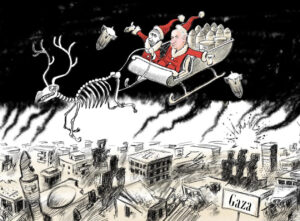
Killing them with kindness.
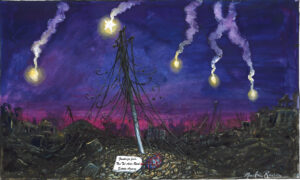
Like when you Like when you strip down and ready yourself to assault Gaza yet again and ‘mow the grass’. What you end up doing is scalping the lawn and likely destroying the body of the grass, so vital for it’s life. And so is what you are doing to the Palestinians. Doing them slowly. It’s a totally disproportionate response.’
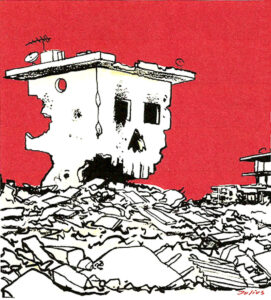
‘That’s rather harsh, Mr. Keating’, protested Mr. Leibler. ‘Israel disputes characterisation of it as acting without mercy. It has no choice but to fend off repeated Hamas rocket attacks and incursions.’
‘Mr. Leibler, I may not agree with your analysis of the situation in southern Israel and the occupied territories but I do share your concern of the flow-on effect it could have in Australia. There’s been such a of buildup of hatred and disrespect for life and the truth generated by these hostilities.’
While testifying before Congress, The U.S. Director of National Intelligence Avril Haines would later warn the war in Gaza would ‘galvanize violence by a range of actors around the world.’
‘I’m a great believer in the power of human affection,’ continued Paul, ‘You’ve got to have the love quotient working for you. That which flowed from my grandmother and mother was deep and nurturing. They invested a ton of love in me. I concocted my own philtre out of it and promote it to help filter out hatred in the air.

It radiates for me and gives me an inner confidence. It’s almost like wearing an asbestos suit – you go through the fire but you’re not going to be burned because someone loves you, you are complete, you are together.”
You’re a lucky man, Paul. I never got to know my maternal grandparents. As you’re aware they were murdered in Auschwitz. No asbestos suits would have saved them.’
‘I propose we proceed,’ continued Paul, by suspending cynicism and agreeing that people can learn from their mistakes. I am prepared in my own way to take you and your colleagues at your word and look at the situation of hostility through the prism of respect and love. I’m confident the Palestinians too have their heart in the right place .
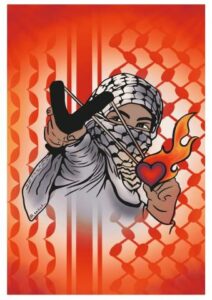
‘Thank you for that courtesy, Mr. Keating. And for my part I will studiously avoid any of that bluntness, viciousness and intolerance of dissent that my critics have laid at my door. Let me just state at the outset that clearly Israel has the right to protect itself.’
‘That is not what is at dispute. However under international law, Israel cannot claim the right of self-defence against a threat that emanates from the territory it occupies – from a territory that is kept under belligerent occupation. Israel must respect the international humanitarian law principle of distinguishing between civilians and combatants. This killings of those not in any armed group must cease.’
‘These things happen in war, Paul. We go to great pain to protect non-combatants. Israel is absolutely complying with international humanitarian law.
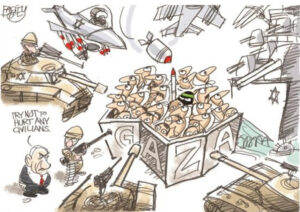
Any claims to the contrary are divorced from reality. Israel is definitely not an apartheid state as charged by it’s critics.’
‘ Mr. Leibler, You have a close relationship with Israel’s powerful intelligence agency, Mossad. What about the estimate of its former head, Tamir Pardo. He describes the system thus: “[The] fact that there are two populations on the same territory – one [that lives] according to military law and one according to Israeli law – is apartheid by definition.”
‘Everyone has a right to their own opinions. That’s the great feature of a healthy democracy. You cannot have a state whereby indefinitely it is going to be ruling over people who don’t have citizenship rights. Just don’t believe what Hamas supporters say, Mr. Keating. Their views are symptomatic of an anti-Israeli mindset that underplays the country’s legitimate security concerns.’
‘As I said killing large numbers of children is not legitimate.’
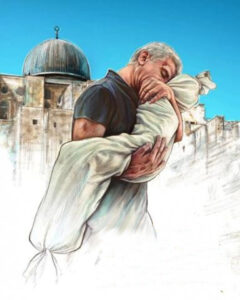
‘Hamas exaggerate these numbers. The IDF conducts thorough reviews at the highest levels to understand the circumstances of any such tragic incidents. Whatever the case, I’m sure you agree we have to avoid the hate speech being directed at the Jewish people.’
‘I do. And you have to convince your friends in Tel Aviv to stop spreading theirs.’
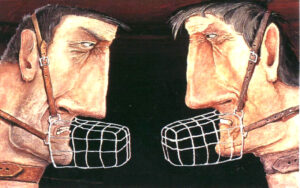
‘What are you talking about?’
‘I’m talking about representatives like Likud lawmaker, Galit Distel Atbaryan. That galoot has written: “Erase Gaza from the face of the earth. Let the Gazan monsters rush to the southern border and flee into Egypt, or die.”
I’m talking about people like the Defence Minister who declared, ‘We are fighting human animals’.

Netanyahu said the struggle between Israel and Hamas is ‘between the children of light and the children on darkness, between humanity and the law of the jungle.’
I’ve noted that the Israeli Economy minister, Nir Barkat, said in an interview with ABC News that concerns over hostages and civilian casualties will be secondary to destroying Hamas.
The deputy mayor of the Israeli-run Jerusalem municipality, Arieh King, called for burying alive dozens of civilian Palestinians whom he described as “subhuman”, the term used by the Nazis to classify Jews.
Then you have Israel’s Jerusalem Affairs and Heritage Minister Amichai Eliyahu who claims there are no noncombatants in the Gaza Strip and that dropping a nuclear weapon on the Gaza Strip is “an option.”
“We are now rolling out the Gaza Nakba,” said Avi Dichter, Israeli Agriculture Minister.
Then you have the Israeli minister of national security, Ben-Gvir, a man who himself was convicted in Israeli court 15 years ago of aiding terrorism and inciting hatred of Palestinians, referring to released Palestinians youths as ‘those human scum, those Nazis’.
This malicious mashugana led a conference of settlers and Knesset members into singing and dancing while the release of Israeli hostages was being ignored by his government.
Then you’ve got Finance Minister Smotrich declaring, “I think the village of Hawara needs to be wiped out. I think the state of Israel should do it.” He says ‘we are settling Israel from ‘width to length’.
This came after after a mob of several hundred religious Israeli settlers in the occupied West Bank attacked the Palestinian village nearly two weeks before, burning dozens of buildings and cars and killing a man in what Israeli military commander Fuchs called a “pogrom”.
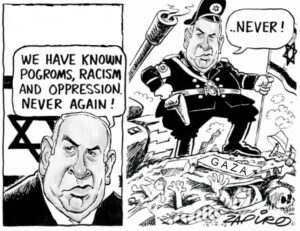
Smotrich is a self described fascist homophobe. Weren’t the Nazis and others who rounded up jews for the gas chambers fascists?’
Israeli ambassador to the UK Tzipi Hotovely does not deny that she is arguing for “destroying the whole of Gaza.”
Moshe Saada from the Likud party says the government’s own attorneys shares his views that Palestinians in Gaza must be destroyed. I quote: “You go anywhere, and they tell you to destroy them. In the kibbutz, they tell you to destroy them. My friends at the state attorney’s office, who fought with me on political issues in debates, said to me, ‘It is clear that we need to destroy all Gazans’. This is clearly a strategy of Likudation.’
‘Mr. Keating, ‘You have to understand how these spokesmen are distraught responding to the news of Israelis being killed by followers of Hamas.’
‘Lindsey Graham, Israel’s backer in the US Senate sounds more genocidal than distraught. This boxhead, representing those who in a come-to-Jesus moment have suddenly discovered Jews, is calling for an all-out annihilation of Gaza: “We’re in a religious war here, he says.
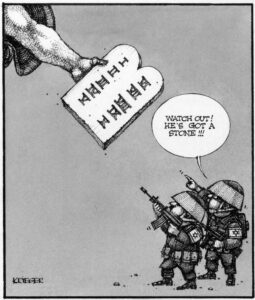
‘Presumably he thinks that his god squad will protect true believers from terrorist assault.’

‘I am with Israel,’ adds Graham. ‘Do whatever the hell you have to do to defend yourself. Level the place.”
‘I cannot answer for Senator Graham.’
Tim Walberg, a Republican member of Congress and former Christian pastor would publicly suggest Gaza should be bombed “like Nagasaki and Hiroshima. Get it over quick.”
Argentina’s President Javier Milei would call for the demolition of Al-Aqsa Mosque, the third holiest site in Islam. This was “in order to bring the Messiah and build the third temple.”

‘Mr. Leibler, your letter rails against hate speech. At the same time you cannot ignore the effects of the chilling words coming out of the mouths you’re asking us to support.
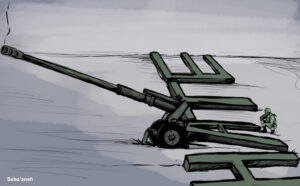
Anyway who else is signing?’
‘Other eminent statesmen include Messrs Morrison, Howard, Abbott and Turnbull,’ replied Mr. Leibler.
Paul scrutinised the letter and immediately realised what the the pig in the poke really was. It was a bum steer. One name had been misspelled. That of Morrison.
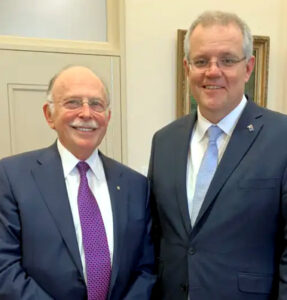
In such a monumental document, no one had spotted this mistake -not even the bearer himself.
‘Is this some kind of joke? he cried. ‘’Scummo’’s calling for Australians to show respect. That reprobate who turned his back on our firefighters in their time of mourning.
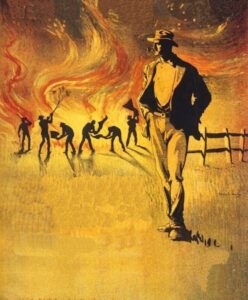
Instead of supporting them, he decided to go overseas on holiday.’

‘Nevertheless he’s a loyal friend of Israel. He responded appropriately to the biased report from Amnesty International criticising it’s alleged abuses of human rights. He commented saying, ‘No country is perfect.’
‘When it comes to flagrant abuses of power, Israel actually does approach perfection. It’s been working on it for so long. Scummo has warned against Australia being ‘suckered’ into a ceasefire.’
‘I’m sorry you feel that way, Mr. Keating. But there are others.
There’s Malcolm Turnbull.
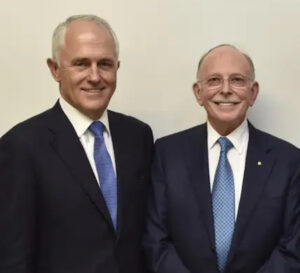
‘Top Hat’ Malcolm from the top end of town. However a little burst of sunlight after the Mad Monk. I’ll say this much for him. He got it right when he criticised Morrison’s solidarity trip to Israel as ‘showboating’. He sees ‘Scummo’ as someone with ‘plenty of time’. And Malcolm got it right when he apologised to Syria after our RAAF killed ninety government soldiers there. That blunder, which would have been in tight consultation with shared Israeli intelligence, is comparable to Israel’s killing of American servicemen on the USS Liberty

‘It was an unfortunate accident that took place in the fog of war but nothing more. Why would Israel attack its major ally ? Claims from Malcom Fraser that Israel deliberately bombed the USS Liberty is a “mad, demented conspiracy theory”.’
‘Tell that to the survivors who still suffer from the consequences. Why would they still believe the attack was deliberate?’ This raises questions about us relying on Israel’s so called intelligence mastery. Malcolm Fraser also believes the pro-Israel and in particular Jewish community lobby in Australia wields too much power”.
‘It seems Mr. Fraser developed an antagonism towards the Jewish community and Israel for reasons which are certainly not apparent to me or to anyone else.”
‘Maybe he watched the news on TV at night.’
‘He suggested we have dual loyalties, a notion that is disgraceful and outlandish.’
‘What Malcolm did was to embrace for our country a much better foreign policy, one free from outside control. I commend him for having done this. He detested what he saw as our strategic subservience to the United States and our willingness to be easily led from the path of a truly independent foreign policy. Who else do you have in your celebrity lineup?’
‘There’s John Howard who led us in our war against terror in Iraq. Against the common enemy of our civilisation.’

‘Little Johnny should hang his head in shame over that. How easily the warmongers pulled a swifty on him -and others.
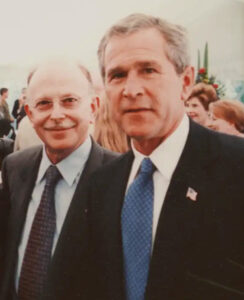
That unctuous little poodle took us to a disastrous war on a lie. He should be held in contempt by every thinking Australian. He’s simply an accident on its way to happen yet again.

He visited on Australia the whole spectre of terrorism and racial strife through his prejudices and his craven and ill-judged support of the US and its invasion.’
‘You have to admit he helped warn Australian citizens about the risk of Islamic terrorism.’
‘Yes, with his childish “Be alert but not alarmed” fridge magnets. People should be alarmed both about what he did and alert as to what he’s trying to get away with now. We need more than fridge magnets to rid us of his legacy. He helped Bush to leave Iraq fractured and cast millions of refugees adrift from their lives and homes.
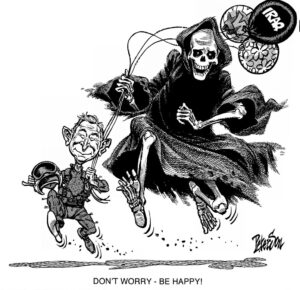
He strengthened the hand of Islamic hardliners in Iran just as the US and UK did when they overthrew the elected Mossadeq government. He helped create the circumstances for the rise of Islamic State. He said he ‘grappled inadequately and in despair’ to try to comprehend what happened in Bali. He was all wound up like an antique clock. One more half turn and there would have been springs and sprockets all over the place. That’s what you get when you read from the same script and teleprompter of others.
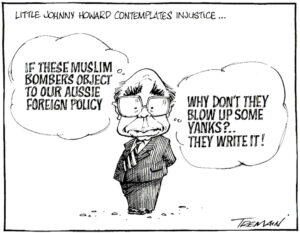
He’s still grappling. If you have to read out something of great import written wholly by someone else, you’re useless.’
‘You’re very unkind in your estimate of Mr. Howard. He’s a very compassionate man. He’s very sad about what’s happening in the holy land right now.’
‘I’m sure he’ll have tears in his eyes.’

‘After Bali he called on us Australians to gather ourselves around each other and wrap our arms around each other and the people of other nations.’
‘How touching. And by cutting off the air and squeezing the life out of even more Muslims in his bearhug, you expect me to stand together with him in this lovefest. Does he honestly fancy himself as the Dear Leader, exuding deep, heartfelt affection for the people and cheered with exultant adulation in return.
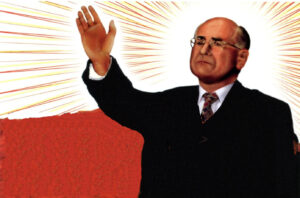
‘We all know his motto about love: ‘Love means never having to say you’re sorry.’ He said that he did not believe genocide was committed against indigenous Australians. He refused to issue an apology in this historic act of reconciliation. Supporting this colonialist assault against Gaza can only lay the ground for more resentment of us. You want more of the same?”
‘May I point out to you, Mr. Keating, that Mr. Abbott is also one of the signatories.’
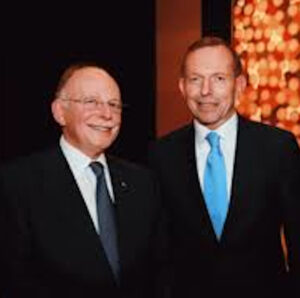
‘Yes, the Captain of ‘Team Australia’, feeding the view that Australia is under attack and in need of fortifying from terrorists.
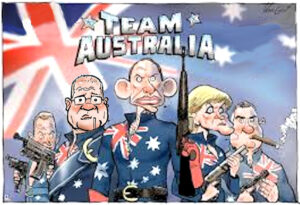
Dredging up again the simplistic depiction of Hamas as being nothing other than another ‘death cult’ like ISIS. One which wants to fuel ancient hatreds throughout the world..’
‘As with democratic Israel in the Middle East, Mr. Abbott believes Australia should stand shoulder to shoulder with the United States and the United Kingdom in meeting the other great strategic challenge of our time, which obviously, is authoritarian China.’
‘Wait a minute, Mr. Leibler, it’s not as obvious as you think. As with the status of Israel, Australia should not be drawn into a war over the status of Taiwan. This would be a supreme folly. Beijing views Abbott’s embrace of Taiwan as inflammatory and in flagrant contempt of the One China policy that has enabled our peaceful relations for so long. And as for Israel being so democratic why has that cartoon clown in charge, Netanyahoo, been so bent on limiting the powers of the judiciary?’
‘What do you suggest, Mr. Keating?
‘There should be a permanent ceasefire between Israel and their adversaries and a cessation of hostilities.
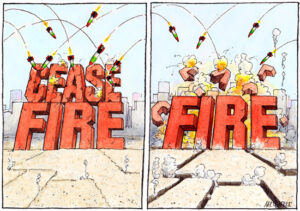
This situation, where children long for a happy home but hit a brick wall, cannot continue.
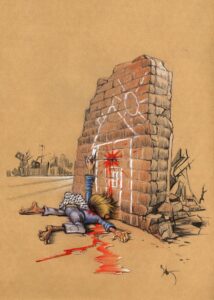
They need to have hope.
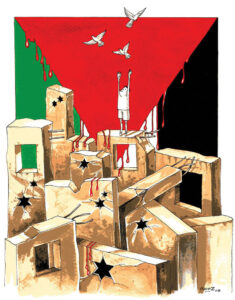
Human beings are also able to talk, not only to carry a club.’
‘Hamas are not humans. They’re animals.’
‘That makes it easier to kill anyone around them, doesn’t it.’
‘They even hate Muslims.’
‘You’re joking. Are these the Islamic counterparts of the so called self hating jews, the term used against jewish critics of Israeli government policy?
‘A lot of the American Jews are taken in by the progressive left who in many cases have very different attitudes to Israel.’
‘From what I know about the progressive left in America, their leadership has always included in their ranks a good proportion of jews. Which means that according to you many American jews are not only self-hating, they are self-deceiving and gullible.’
‘They are easily persuaded to believe things about a country they don’t have enough experience of.’
‘So what about the self-hating Hamas contingent? Why would Muslim extremists-or anyone- want to promote hatred of themselves? Like it or not, many in the Middle East followed their surprise attack on southern Israel with awe . They came face to face with IDF military inside Israel proper.
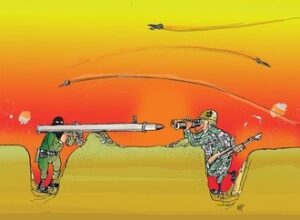
Look, violence begets violence. Unless Palestinians are given self-determination and statehood this cycle of revenge and collective punishment will never end.”
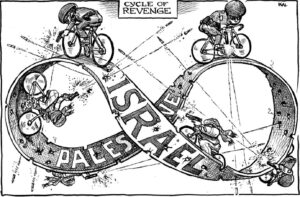
‘So you’re not happy with the wording of this letter?
‘You put the suffering of those in southern Israel ahead of those suffering in Gaza. Israeli media focuses on the destruction wrought by Hamas but screens out the effect of the IDF bombing.
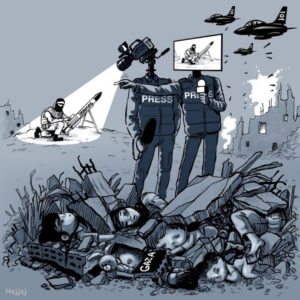
‘You talk about the holocaust but don’t mention the nakba. Why prioritise the suffering of one community over the other? Grief cannot be selective. Why not express in the one breath solidarity with all those suffering in southern Israel and Gaza. After all Foreign Minister Wong acknowledges civilians on both sides have been murdered in the dreadful, tragic conflict’. Grief cannot be selective. We can’t have a situation as a nation where we only formally acknowledge particular deaths”.
‘Mr. Keating, as a man of faith, let me point out our message states that all should consider the words of the 34th Psalm, ‘seek peace and pursue it’. Being God’s chosen people carries for us jews more demanding standards and the necessity to develop a spiritual vigour.’
‘Mr. Leibler, as a student of history let me tell you this. If the holocaust and the defeat of Nazism taught us anything, it is this. There is no chosen people and there is no master race.’
‘’Well I must be going, Mr. Keating?’ said Mr. Leibler, realising he had gotten less than he bargained for but giving it one last shot, ’would you care to sign now while you can?’
‘Pig’s arse’, declared our man, “you’d really have to be some schmuck to fall for your dodgy deal. Not in my name, thank you. I won’t soften my stance. The laddy’s not for turning. Count me out. I can come to my own conclusions without being influenced by any lobby. I don’t do the bidding of any other country. The Liar from the Shire, Little Johnny and the Mad Monk promoting love, skill and humanity- pull the other one. ’
When the time came for Mr. Leibler to depart for home, it was not on the pig’s back.
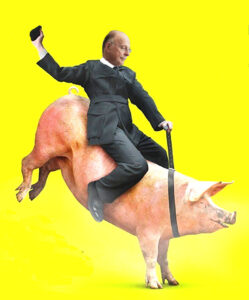
As he was leaving, he heard this lover of Mahler gently singing from the Bee Gees’ playlist, ‘They started a joke that got the whole world crying.’
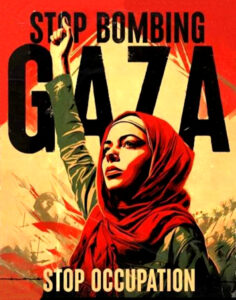
Cracking the Brunchtime Code
Back in the Peppertree Café, I now knew the menu satisfied my catholic tastes, I proceeded to the second part of the test. I suggested to the waitress I play the part of a mute patron. Instead of wasting words, I then asked for precisely what I wanted. I wrote on the serviette: ‘F U N E M N X?’
Without blinking an eyelid, she came back immediately with the reply: ‘S, V F M N X.’
F.U.N.E.T.?’I wrote and held up.
‘S.V.F.T.’ she wrote in reply, adding more to check my order was correct.
‘O.K. M. N.X.T.4.1.’,
‘What kind of code is that?’ asked a puzzled patron next to me. I translated for her the exchange. The first was my question:
‘Have you any ham and eggs?’
The final order she wrote on her pad was ‘O.K. Ham and eggs and tea for one.’
During my meal I thanked my fellow creatures for what they had sacrificed. A day’s work for a chicken, a lifetime commitment for a pig.
As she hovered around, I asked the waitress, ‘What do you think came first? The chicken or the egg?’
‘Why do you ask?’
‘It’s important to see things as they are. On one hand you have an awkward feathered thing and on the other you have the most perfect aerodynamic shape that’s ever evolved. The answer is obvious, right?
‘It’s the egg, not the chicken, right?’
‘That depends.’
‘On what?’
‘On whether you’re having breakfast or dinner.’
Afterwards, still peckish, I decided to have some of both as this was my brunch. I ordered a chicken sandwich. Five minutes later the waitress came up to check for details.
She asked, ‘How would you like your eggs?’ She had obviously confused this order with the earlier one. I could see the link.
I said, “Incubated. Then raised, beheaded, and plucked. then cut up, put onto a grill, and then served between two slices of bread. Don’t worry. It’s going to take too long. I’ll just have toast, baked beans and spam.’
‘Coming up, Sir. Toast and baked beans. I’m sorry we don’t have any wonderful spam.’
‘What, no gelatinous glazed pig entrails about. No swine eyes, tongue and snout. No gourmet delight congealed by fire, mottled with pork fat and gristle.’
‘I’m afraid not. If you want anything else, just whistle.’
After this nourishing fare, treated to the highest standards of hospitality service, I met up with a charming group of Levantine ladies to show my work and tell of my experience.
We sat at a large communal table while around the windows was placed bench seating with colourful cushions and black leather seats with no sides or backs .
‘Ottomans. A reminder of my home country’s furniture,’ said a Turkish lady, ‘named for its Empire which Australia helped put down. Gone. Pouf!’ We talked about the specific shortcomings of the education system in Australia and the tragedy deepening throughout the Levant and beyond. I told them how this was an area I’d travelled through during happier days and now write about.
We talked about the connection between all the problems, both here and at the eye of the storm. We talked about how our capacity to maintain social harmony here is being stretched along orthodox lines and the need to involve everyone in raising the level of popular literacy and knowledge in a global way. The inevitable question arose: ‘How can we teach a working knowledge of English and our culture to those escaping the eye of the storm if we cannot to our own?’ Mercifully the ladies understand that those escaping come from traditional cultures and are mostly highly respectful of the educational process, something we can learn from.
The Truckie, the Tamil and the Teacher.
Paolo needed to improve his English so as to be able to carry on his work as a truck driver in Australia. I made up a conversation group with him and Kodees, a Tamil refugee at Strathfield Community Centre. After hearing Paolo speak, I realised my knowledge of cinematic Italian American English would provide a bridge to communication. We were interested in finding out about his work and experiences in this area.
‘iamo – let’s go!’ I declared.
‘You must have interesting stories to tell about this, Paolo. About you and others.’
‘About much others.’
‘Paolo, much means ‘a lot of’. ‘Many means ‘a large number of.’
‘I always get these mixed up. Thanks for explaining it to me. It means a lot.’
‘Could you tell us some of your stories?’
‘Now where can I start?’ he asked, scratching his head.
‘O.K. What kind of goods did you carry?’
‘All kinds of stuff you name it, I’ve carried it. Cement, tiles, food et cetera.’
‘What were some of your most interesting assignments?’
‘Well, there was the time I was pushing this 18-wheeler along the Autostrada. At every red light, I had to get out of my cabin, run back and bang on the truck door. Other motorists were very puzzled to see me doing this. Can you guess what I had on board?’
Neither Kodees nor I could guess what he was carrying.
‘I give up,’ I said.
‘Me too’, said Kodees.
‘I had twenty tonnes of budgerigars and a ten tonne limit, so I had to keep half of them flying at all times.”
‘Minch’ – wow! You have to be aware of the cargo’s weight. Did you ever carry any heavier loads than this aviary?’
‘I did. You won’t believe what it was. Neither did the police.’
‘Was it an elephant?’ asked Kodees.
‘Listen. One day I was heading along the road. A sign came up that read “Low Bridge Ahead”’. I didn’t see any police so I drove on. Before I knew it, the bridge was right ahead of me and muggins me got stuck under it. This was a real pain in the—.
‘Pain in the neck’, I added discreetly. ‘A real scorchamend’.
I-malano-miau! – I couldn’t believe it! Cars were backed up for miles.
Finally, a carload of carabinieri pulled up. One cop got out of his car and walked around to me put, his hands on his hips and said, ‘What is this? Ma che quest’? Got stuck huh?”
“No, I was delivering this bridge and ran out of diesel.”
‘You always have to calculate how much space you have before you drive under bridges and through tunnels,’ I said.
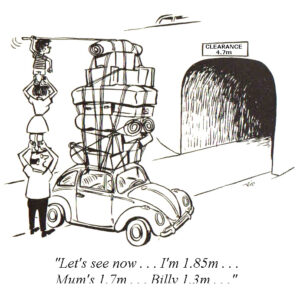
What about dangerous cargo?’ Did you ever carry anything more dangerous than a load of buzzing budgies?’.
‘Yes. radioactive waste. I used to deliver it for the local reactor.’
‘That sounds risky.’
‘Si. Molto pericoloso. Como se dice—dangerous. This stuff is disgust—‘
‘–disgusting. Schifozz’.
‘This stuff is disgusting.’
‘Did it affect your health?’
‘Maronna mia! Oh my God! I began to be taken sick after some time on the job.’
‘When did you first notice the effects?’
‘My wife said to me in bed, please dear, turn off the night light.’
‘I replied, ‘We don’t have a night light’.’
‘What did you do about it?’
‘I decided to seek compensation for this ailment. Upon my arrival at the workers’ compensation department, I was interviewed by an assessor. He said: ‘I see you work with radio-active materials and wish to claim compensation.’
‘Indeed, I feel really sick.’
‘What do your employers have to say about their responsibility?’
‘They say, ‘How do you know? What you can’t see, can’t hurt you.’
‘It’s easy to say that.’
’That’s what my colleague was led to believe. He died of radiation poisoning a few months back’
‘Alright then, is your employer taking measures now to protect you from radiation poisoning?
‘Yes, they give me a lead suit to wear on the job.’
‘ And what about the cabin in which you drive?’
‘That’s lead lined, all lead lined.’
‘What about the waste itself? Where is that kept?’
‘The stuff is held in a lead container, all lead.’
‘Let me see if I get this straight. You wear a lead suit, sit in a lead-lined cabin and the radio-active waste is kept in a lead container.’
‘That’s right. All lead.’
‘Then I can’t see how you could claim against him for radiation poisoning.’
‘I’m not. I’m claiming for lead poisoning.’
‘Truck driving is really is dangerous, Paolo. Did you ever have any accidents?’
‘Once I crashed the tanker I was driving. I spilled its load onto the motorway. The police stopped all oncoming vehicles and warned the drivers to stick to the inside lane.’
What were you carrying?
‘A consignment of glue.’
‘Some people have the wrong idea of truck drivers. Have you had any trouble on account of this?’
‘You come across all kinds of people out on the road. Once I was sitting down in a small roadside cafe, at a table in a corner reserved with a grimy Campari sign. I was minding my own business, looking forward to a plate of spaghetti and a beer. As I was about to eat, three of the nastiest, meanest looking hoons, all tattoos and bad teeth, come roaring in to the parking lot.

They entered the café boisterously, taking over the tiny place. Two of them squeezed next to a woman wearing a leather jacket, eating a hamburger and drinking a milkshake. One hoon said to her rudely, ‘Make room, you silly cow!’
The capitan noticed little old me in the corner sitting opposite an old man and came over to mark the territory. Capish’?
‘I understand. He sounds like Christopher Moltisanti – someone who’ll go out of his way to make trouble. What happened next?’
He towered over the old man and said, ‘Sfigato, I’m giving you fair warning, loser. Anything you do to that chicken, I’m going to do to you.’
So the old man put down his knife and fork, picked up that chicken and kissed it.
He then turned his attention to me, looking at the seat next to me and asking ‘Is anyone sitting there, Stronzo?’
‘It doesn’t look like it, does it,’ I said laughing ’
What are ya laughin’ at? Something funny?’
‘No.’
‘Then don’t laugh.’
What’s the big idea?’
‘There is no idea.’
‘Sitting down, this disgraziato started giving me a hard time – he put his fingers in my pasta and slurped it into his faccia brutta, his ugly puss,’ said Paolo, screwing up his own face and pointing to it. This stupido had a face like this.
‘Faccia questa cosi!’
The waitress came over crying ‘Leave him al—
–one! Lascialui!’
‘Leave him alone’. She asked ‘What the, what the—
‘What the hell are you doing? Ma che cozz’u fai?!’
‘Fatti gatti due!’he shouted, ‘mind your own f—ing business! Staizii! – be quiet!
‘Then this good for nothing sc—
‘Scumbag.’
Then this good for nothing scumbag spat in my meal and asked ‘Are you hungry, Finook? ‘Sesenta fame?’
‘He ordered Mangi! Eat!’
‘Just like the old man, I didn’t let myself be provoked’, Paolo continued. I wanted to shout ‘Ffangul’!- go f— yourself !’ but held my tongue. I remembered what my papa told me once: ‘Never pick a fight with an ugly person, they’ve got nothing to lose.’ Soon this pazzo-idiot- got frustrated by my lack of response and dumped my spaghetti plate right on my head. I was covered with noodles and sauce was dripping down my face. I told this bad dude, this sfacimm’ I didn’t want any trouble and cleaned away the mess. The buttagot-idiot- wasn’t done trailing his leather coat– he told me I’m a ‘lily-livered cissy’ and dumped my beer right in my lap. I thought ‘watch out, you’re gonna get hurt!
‘uarda la ciunca! And then—‘
‘I jumped to my feet. The room was silent. The bikers thought they were finally going to see some action, a big schiaffo — but I just sauntered over to the cash register, settled the check and strode out the door.
‘What happened after that?’
‘What happened after that was recounted to me later by the waitress:
‘ A minute or two passed, Gagootz, and the head hoon decided to have the last word, “That guy sure isn’t much of a man!” About ten seconds of silence followed. The silence was shattered by the sound of mangled metal and the words of the waitress… “And he sure isn’t much of a driver either. He just backed his 18-wheeler over three motorcycles.’
‘Bada bing!’, I cried, banging my hand on the table. ‘Bam! Do you have any more stories for us? Tell us all your deeds so glowing.’
‘Un altra volta.’
‘Un ada oda’, I translated, ‘another time’.
